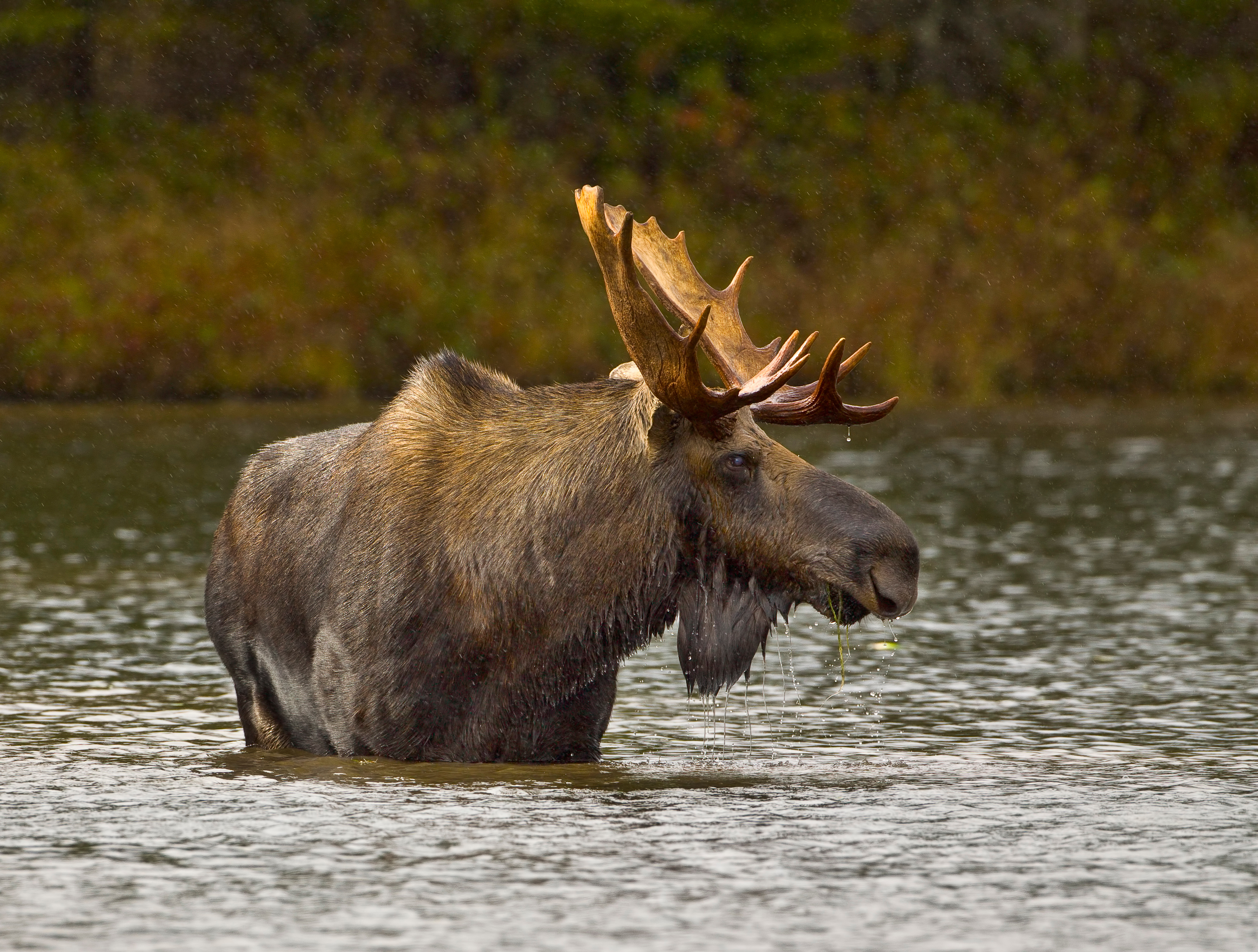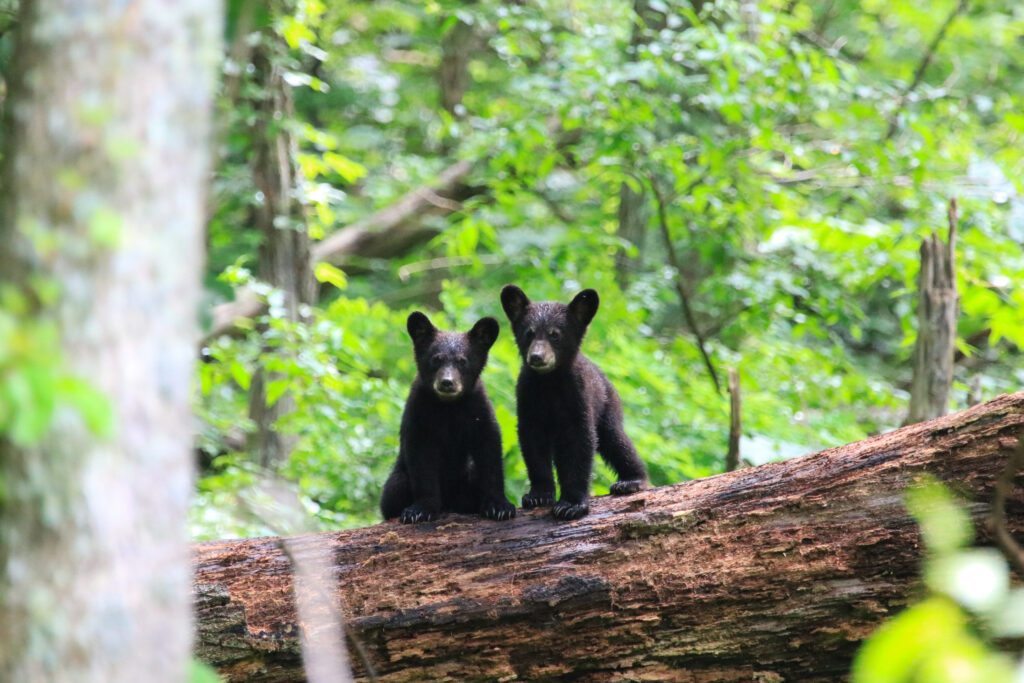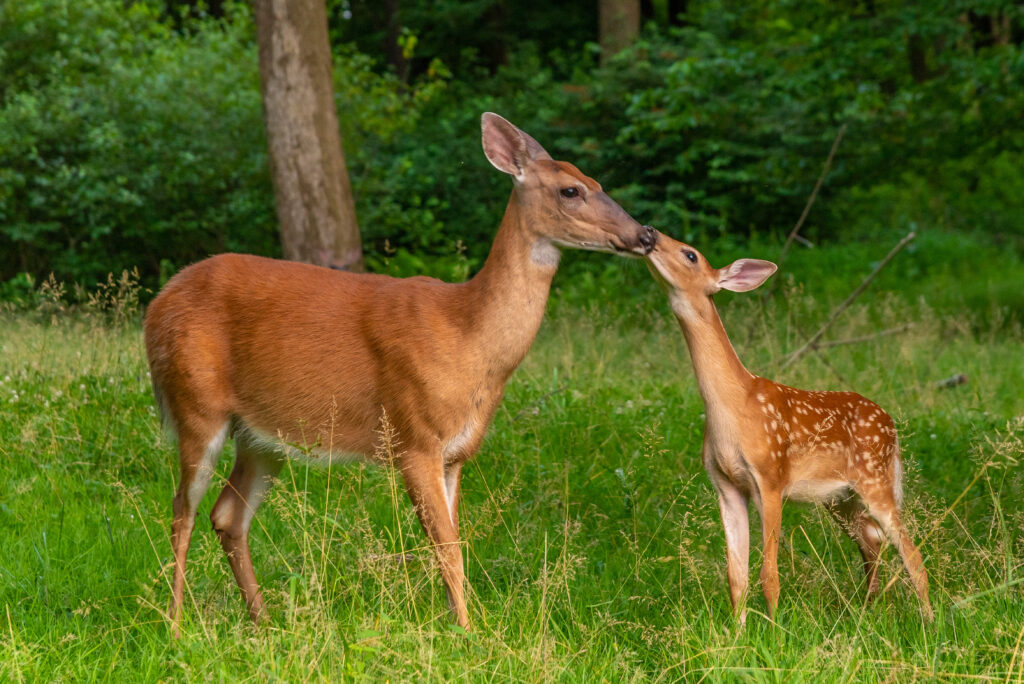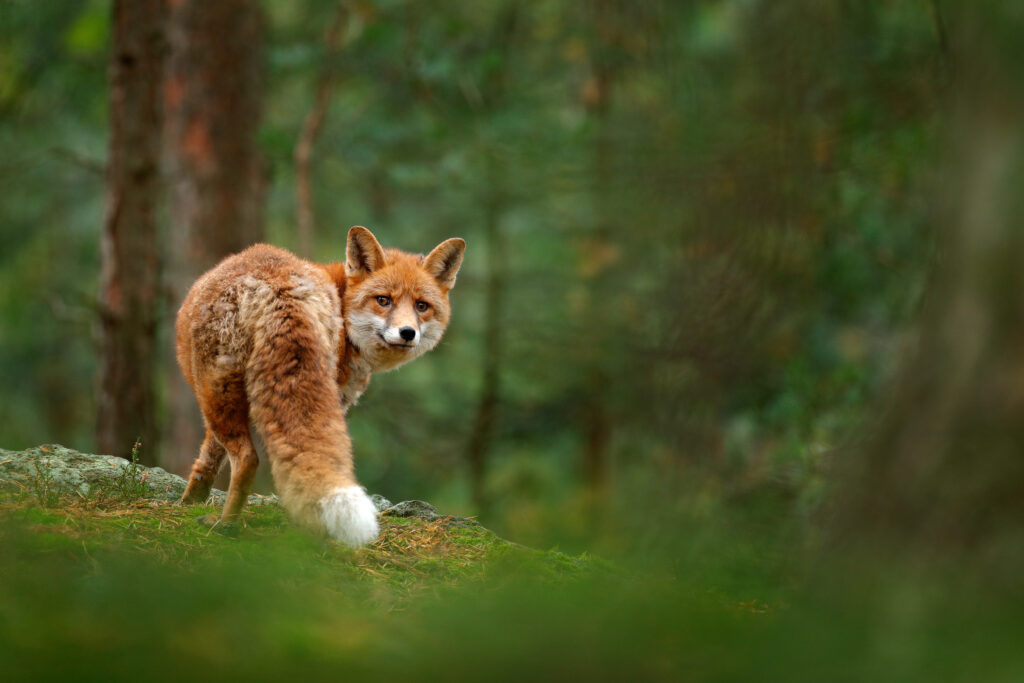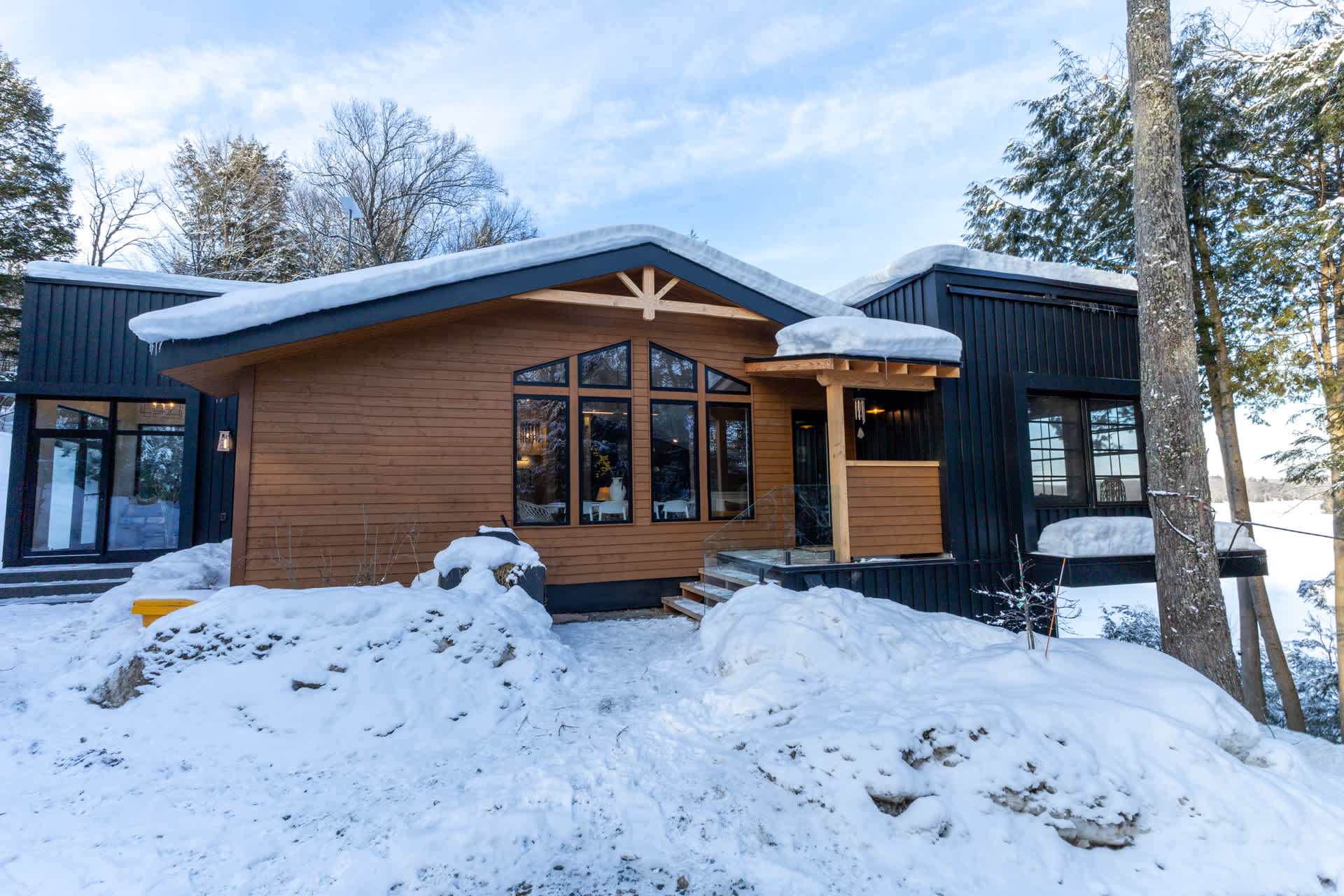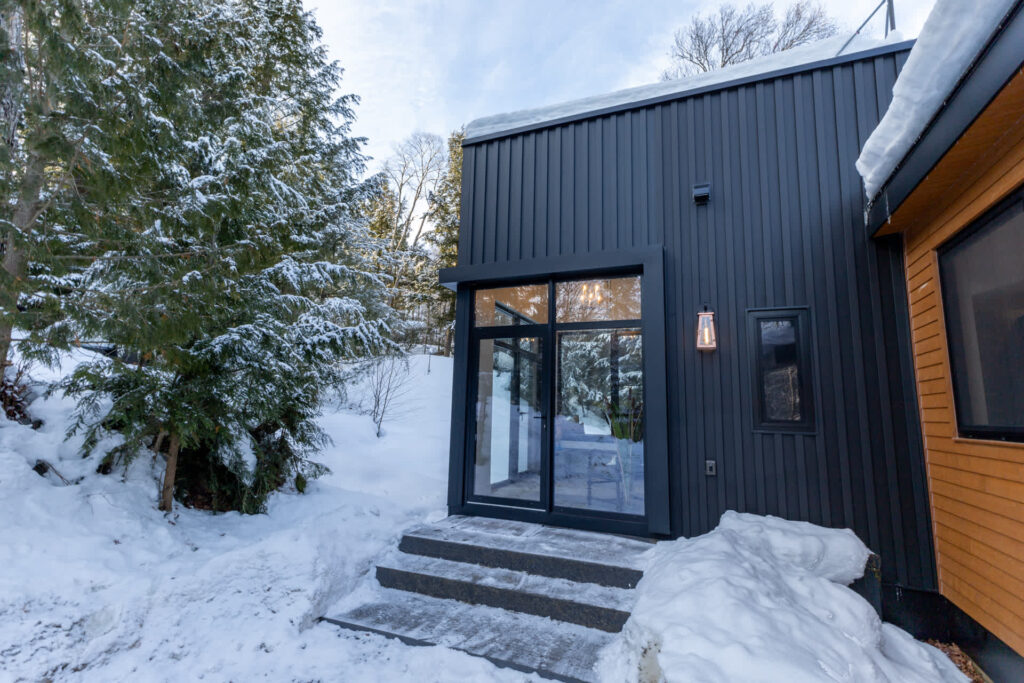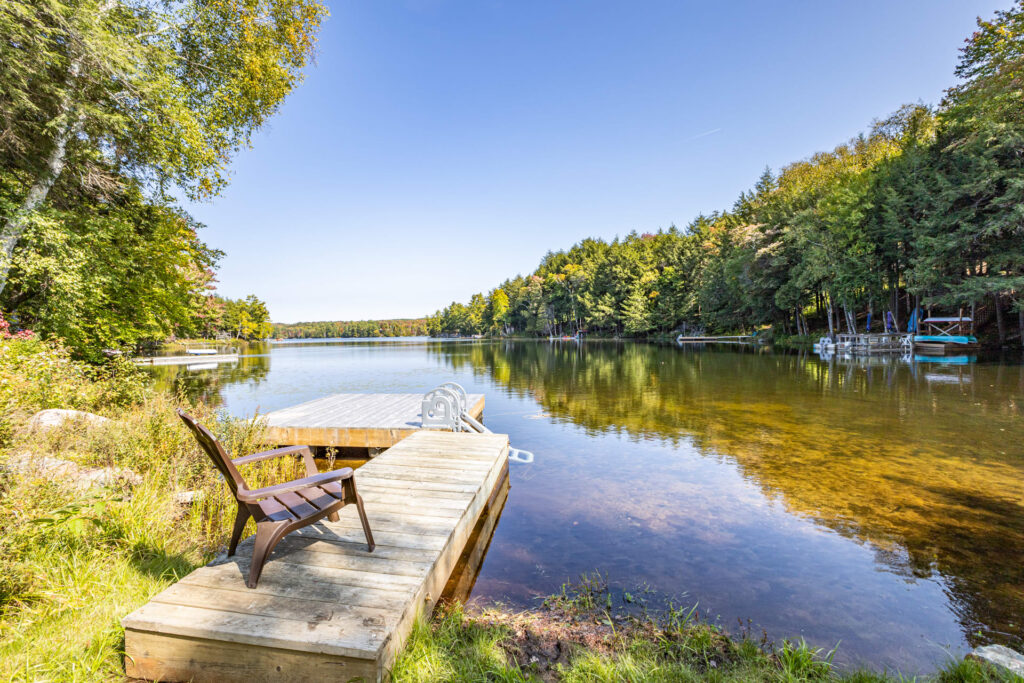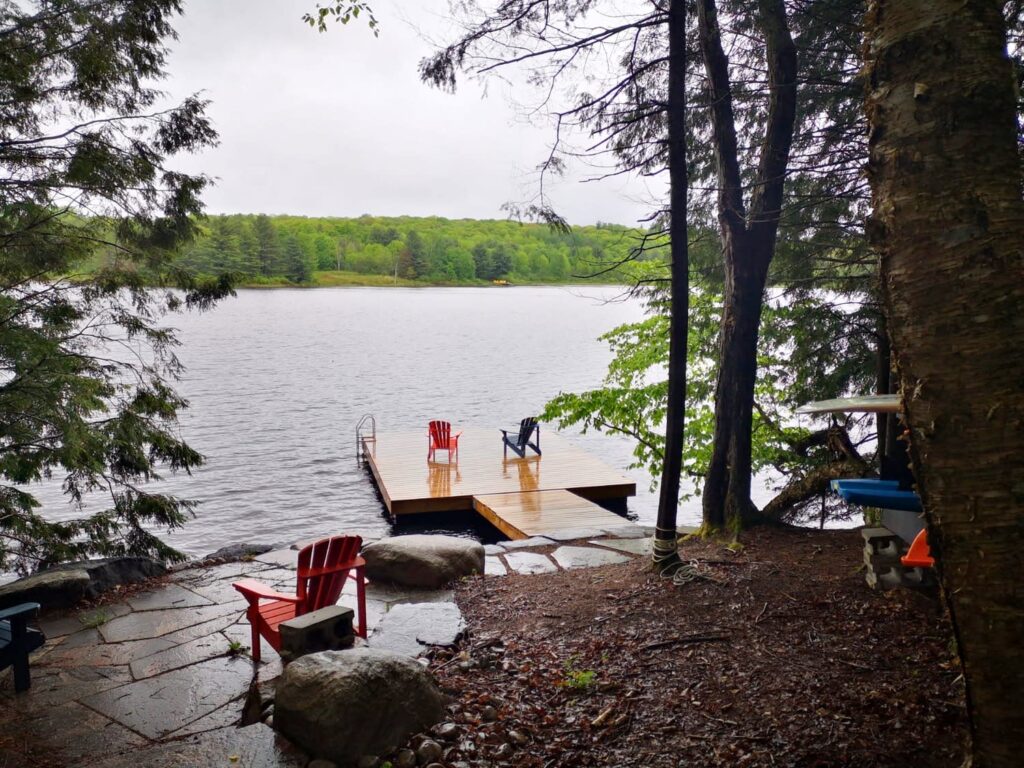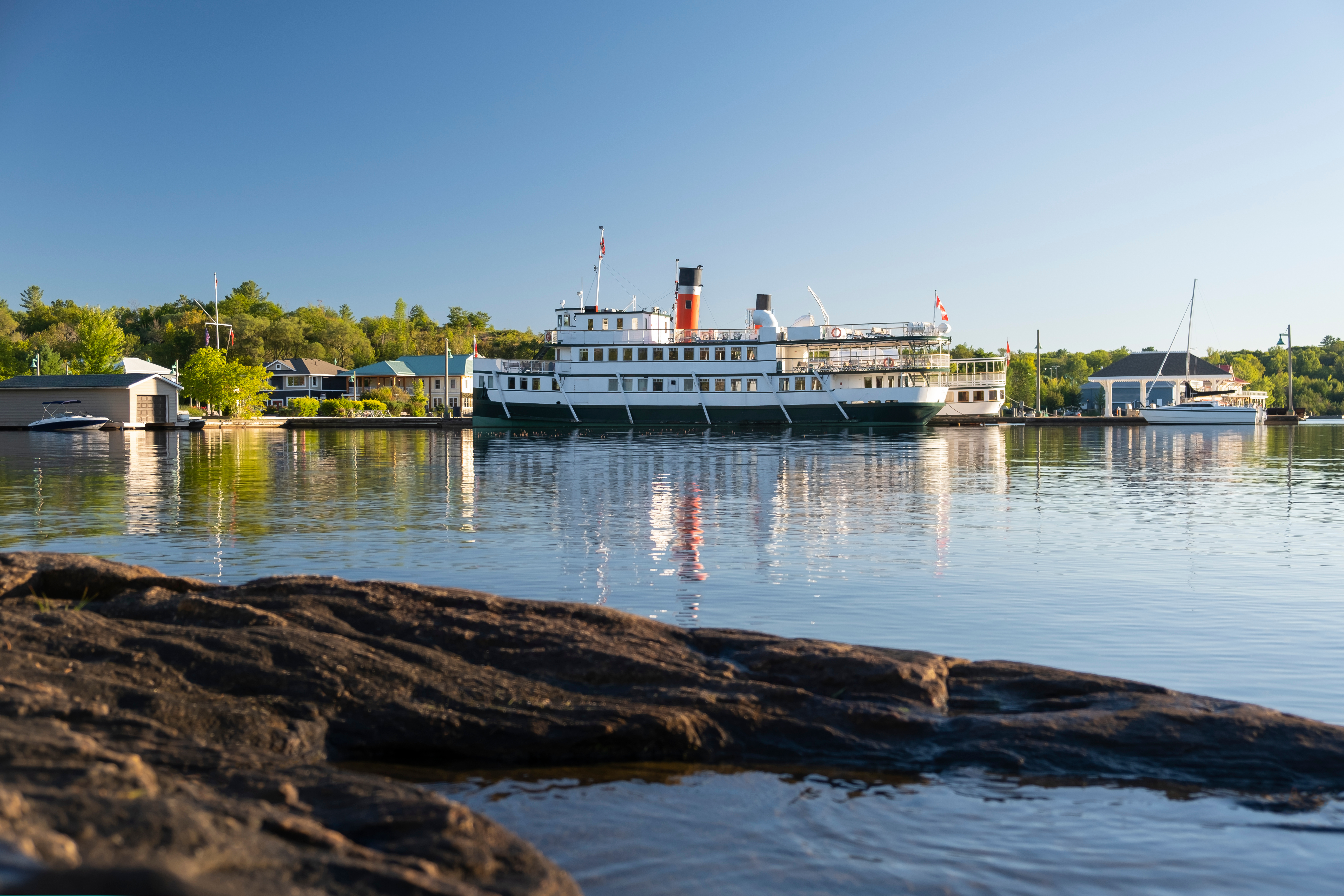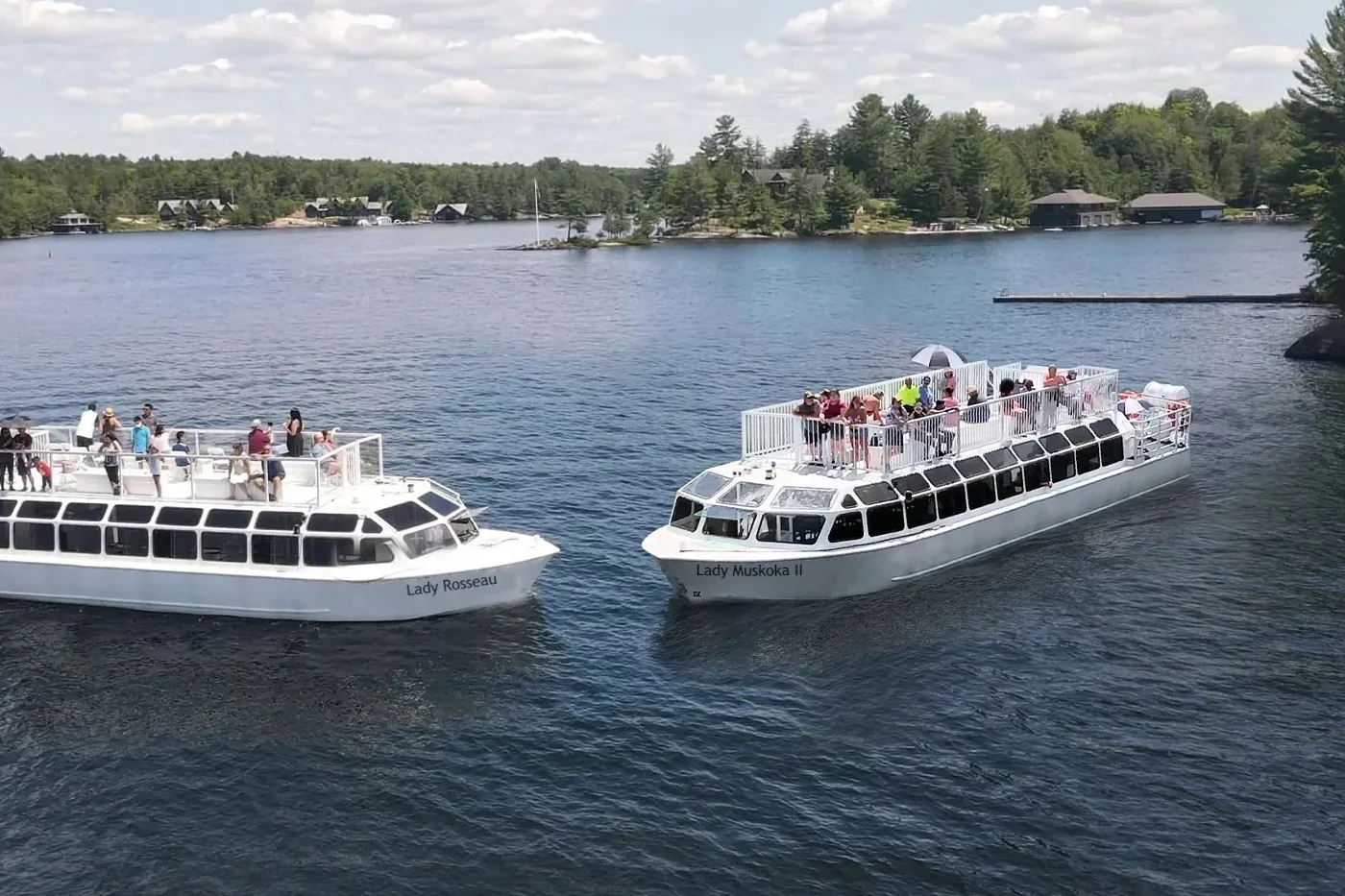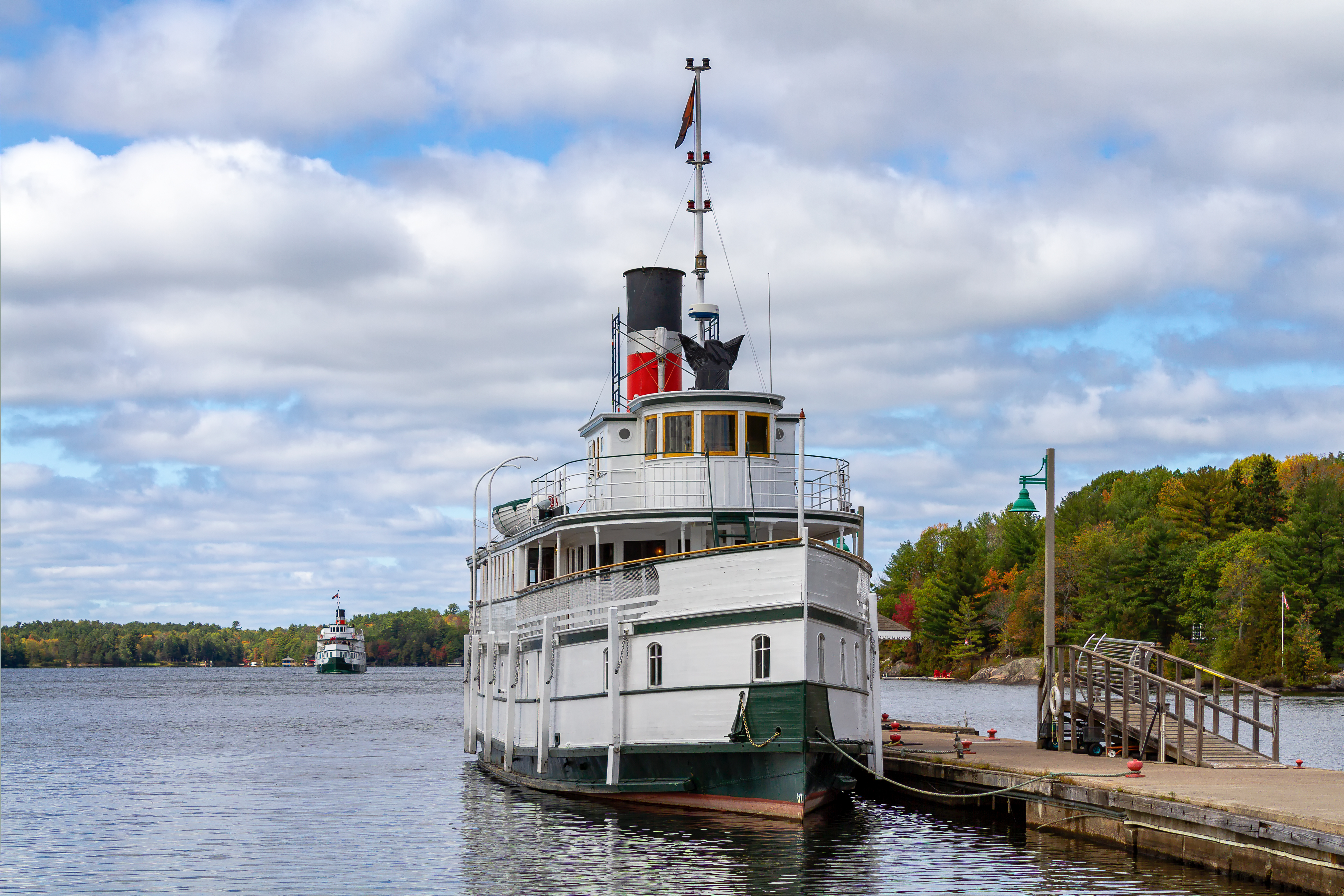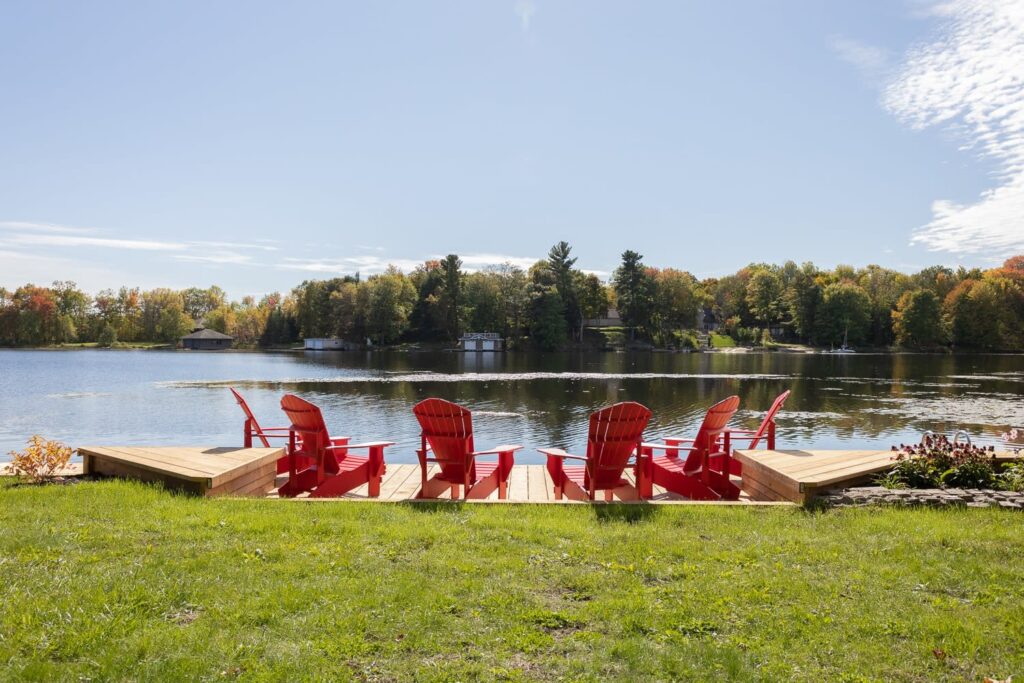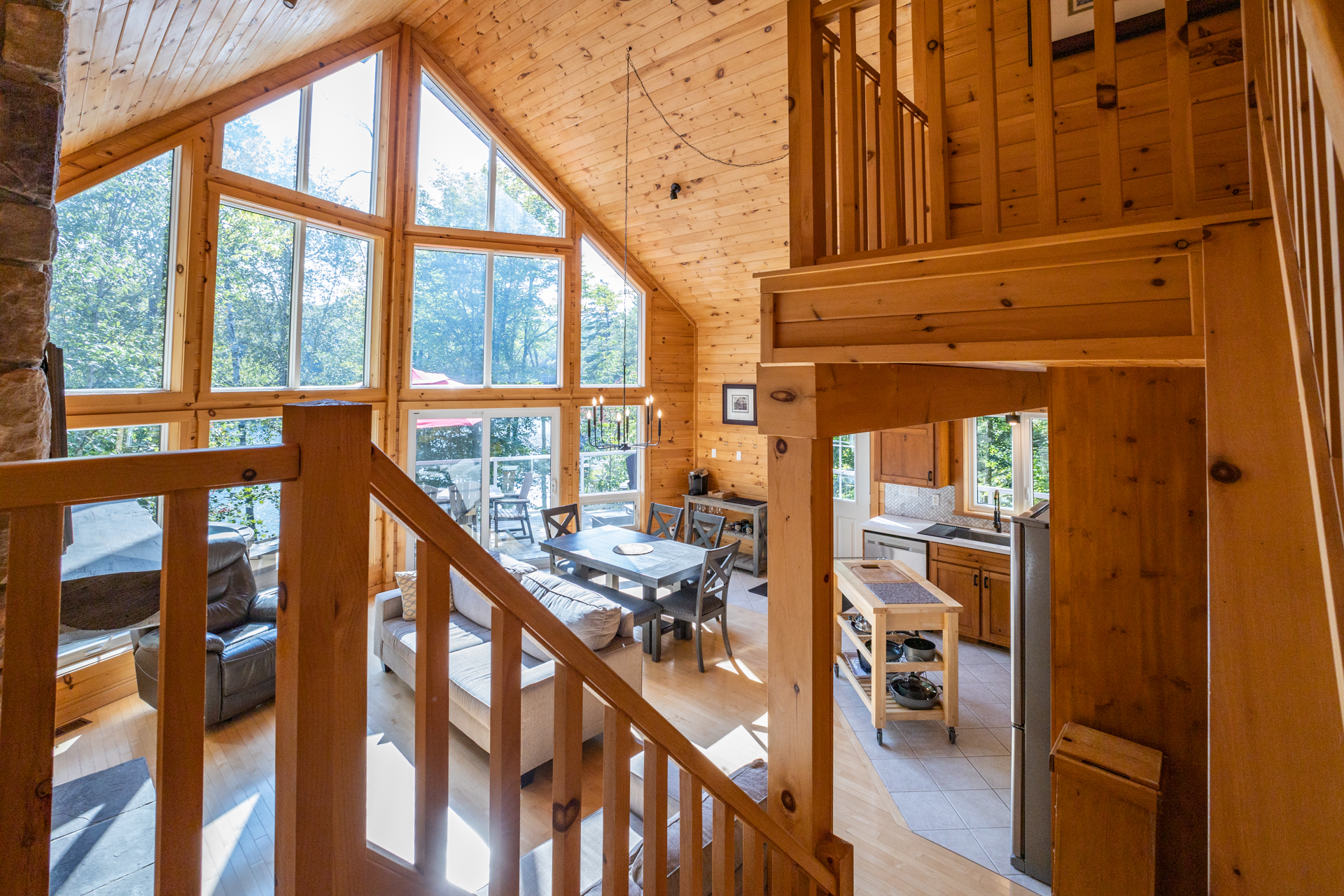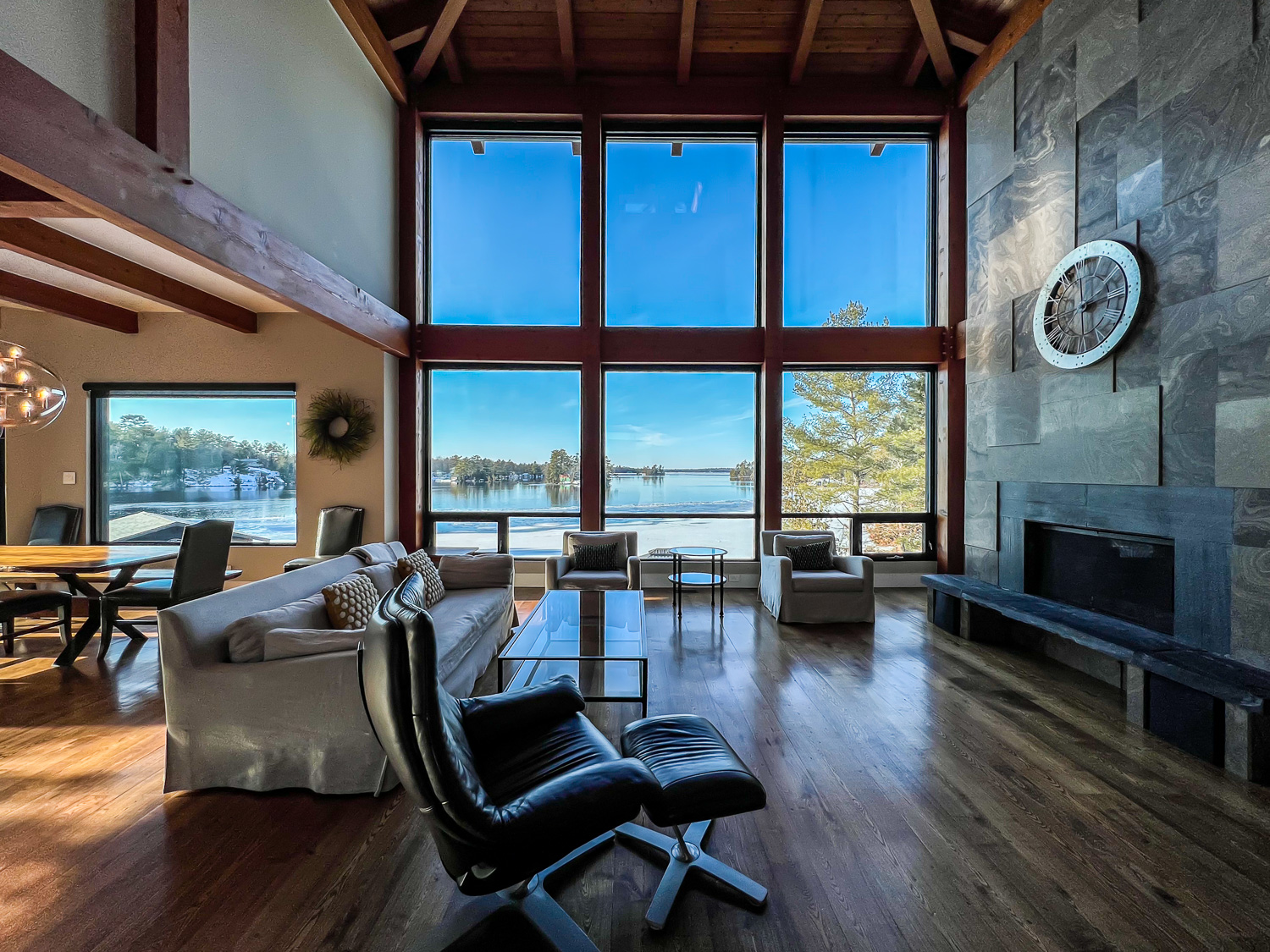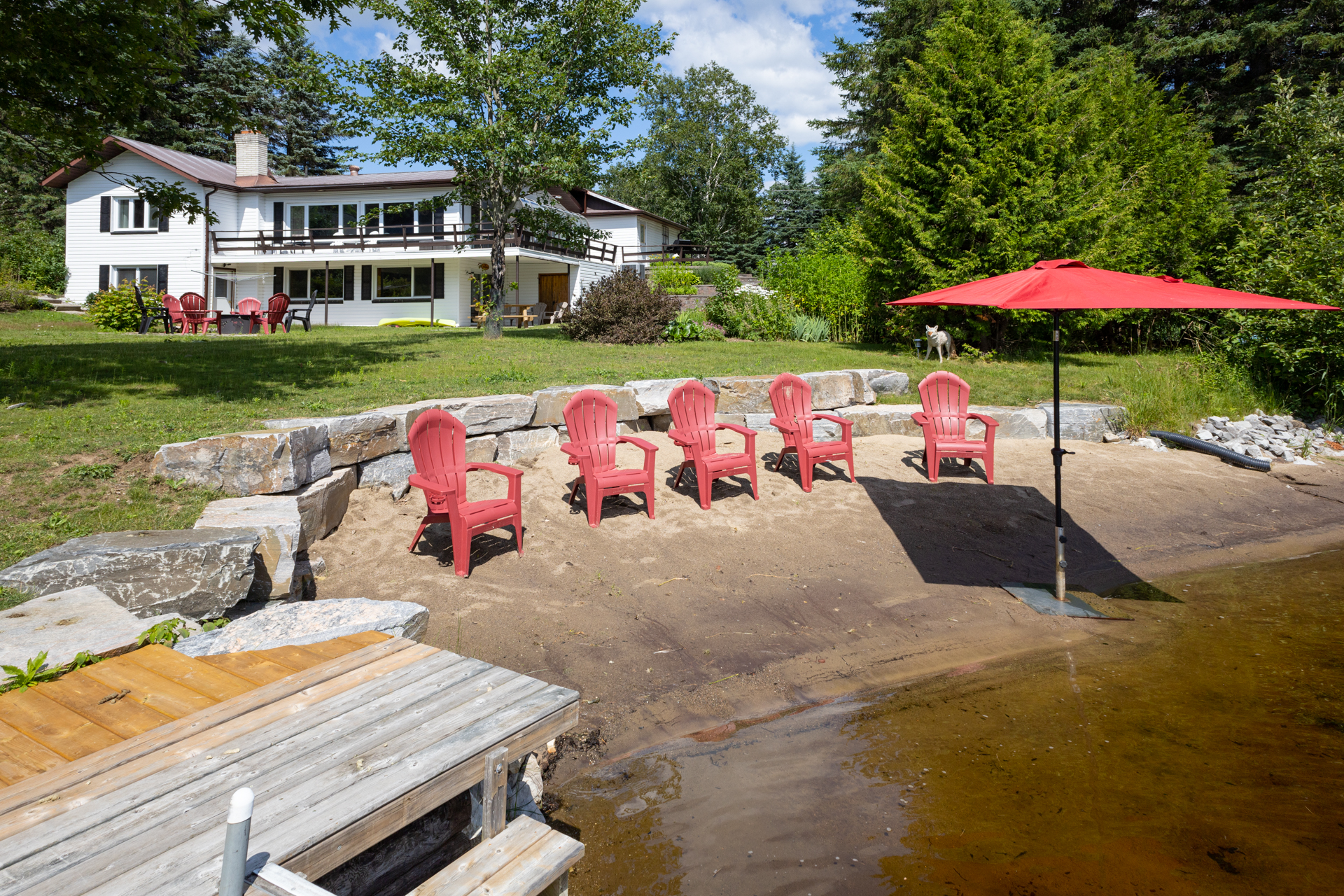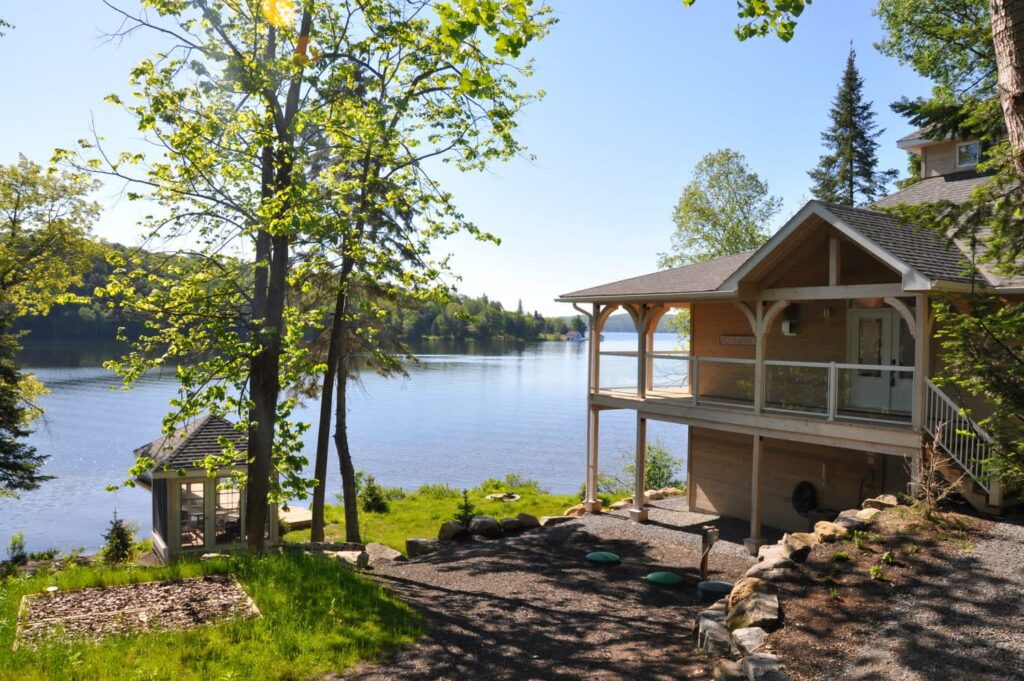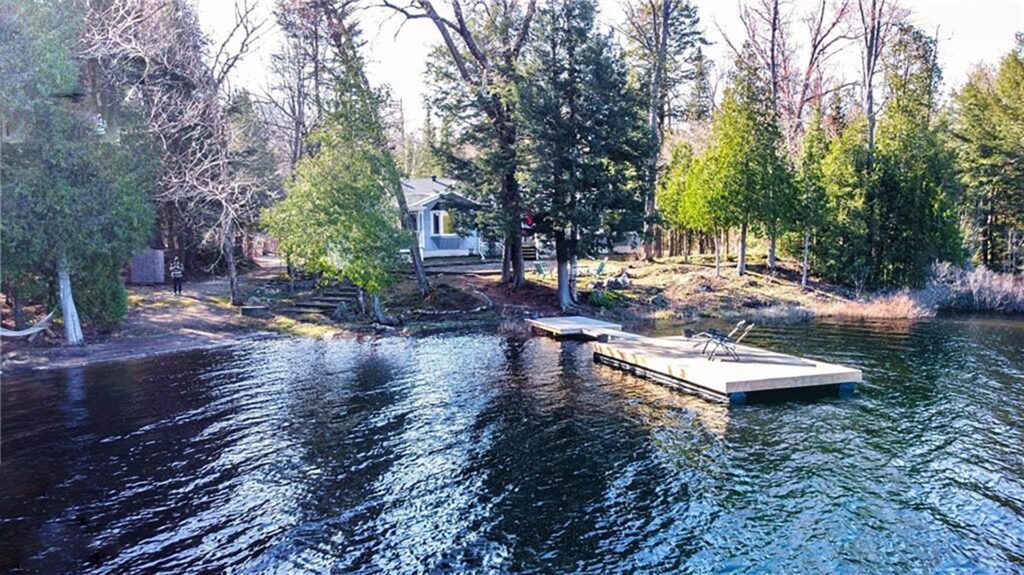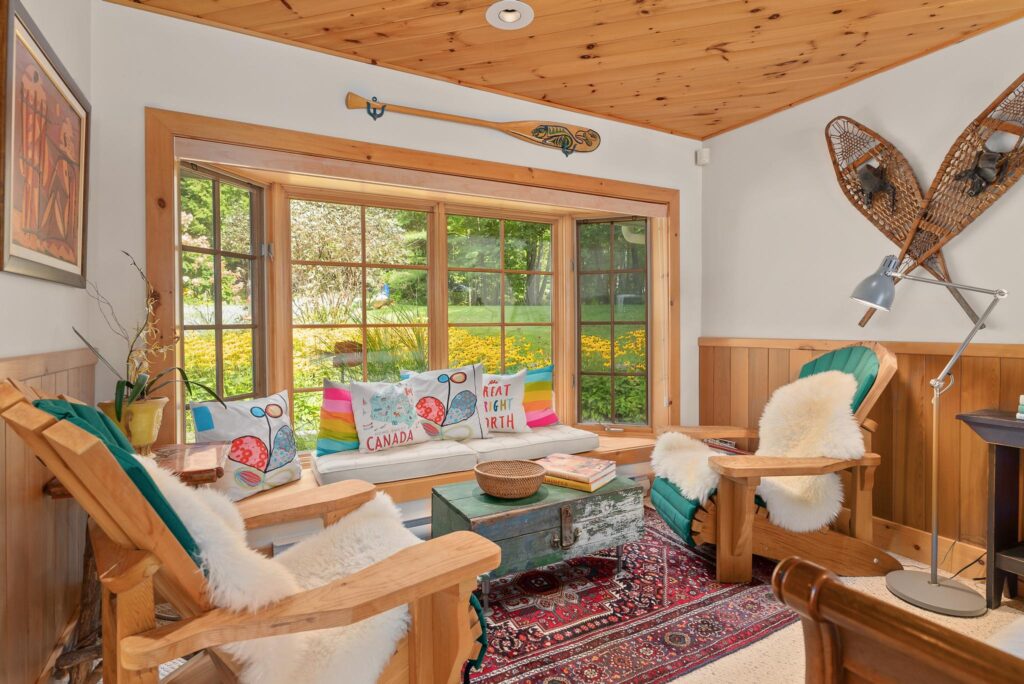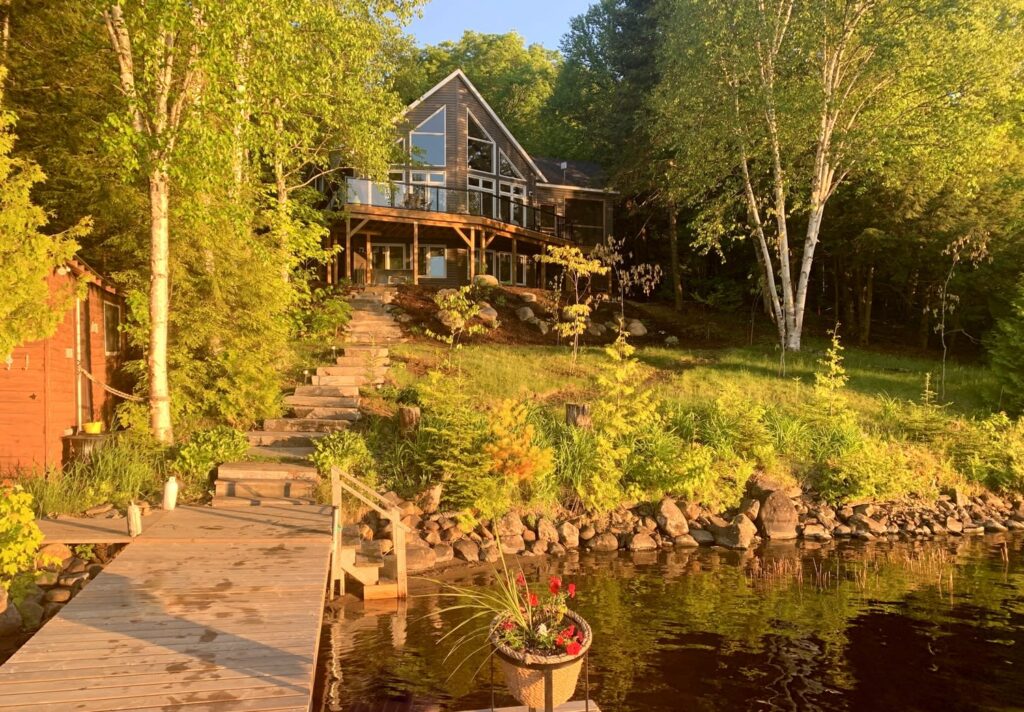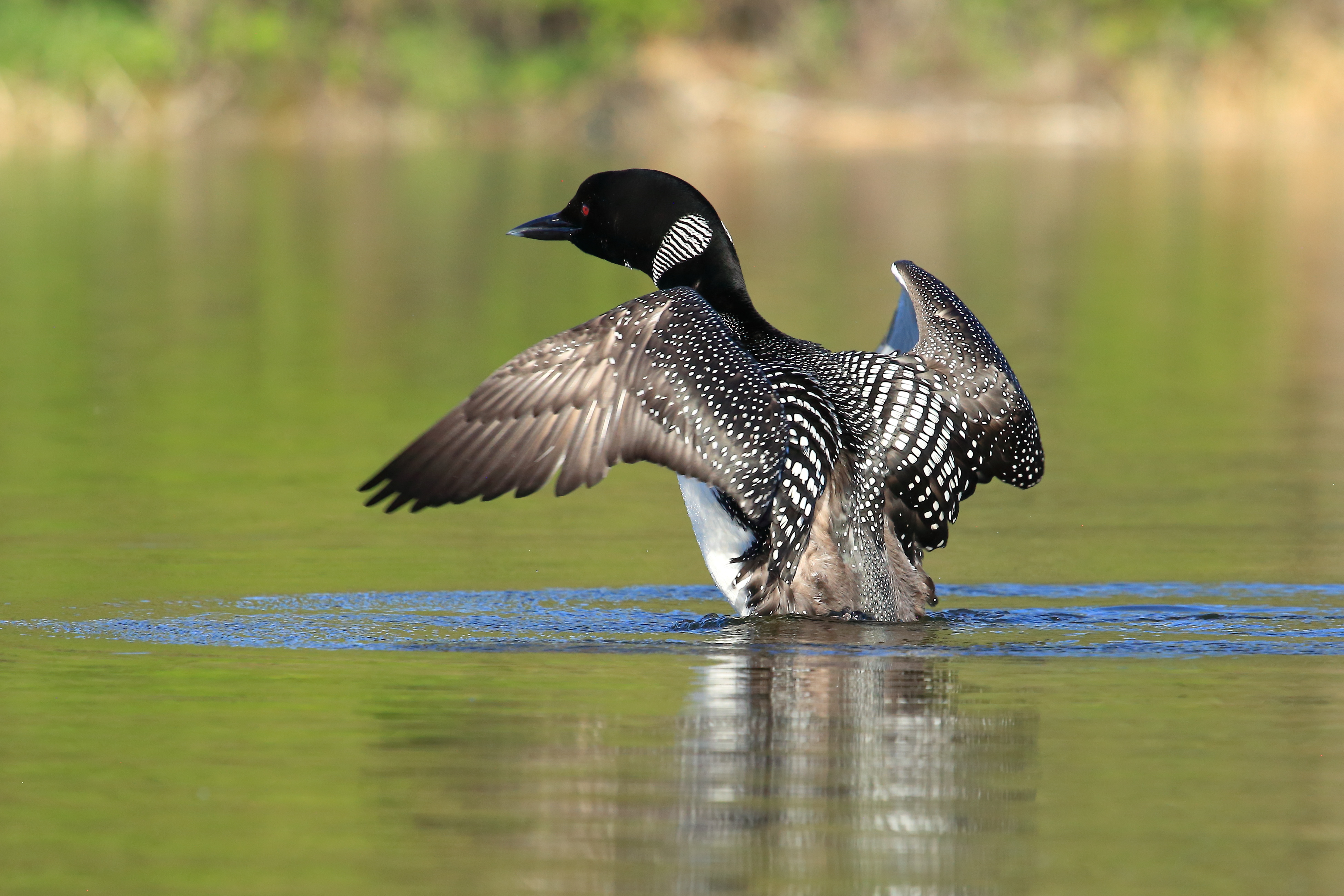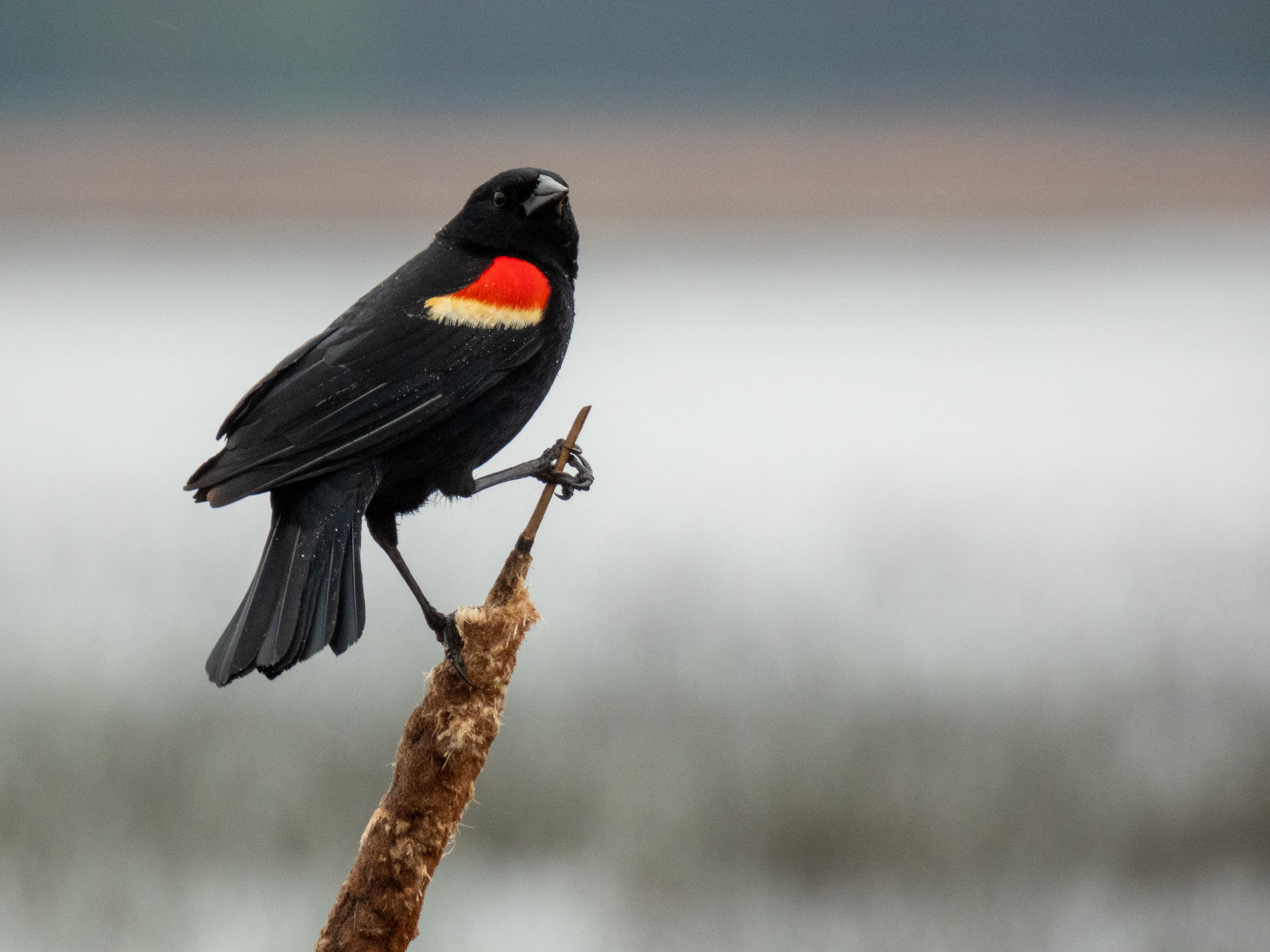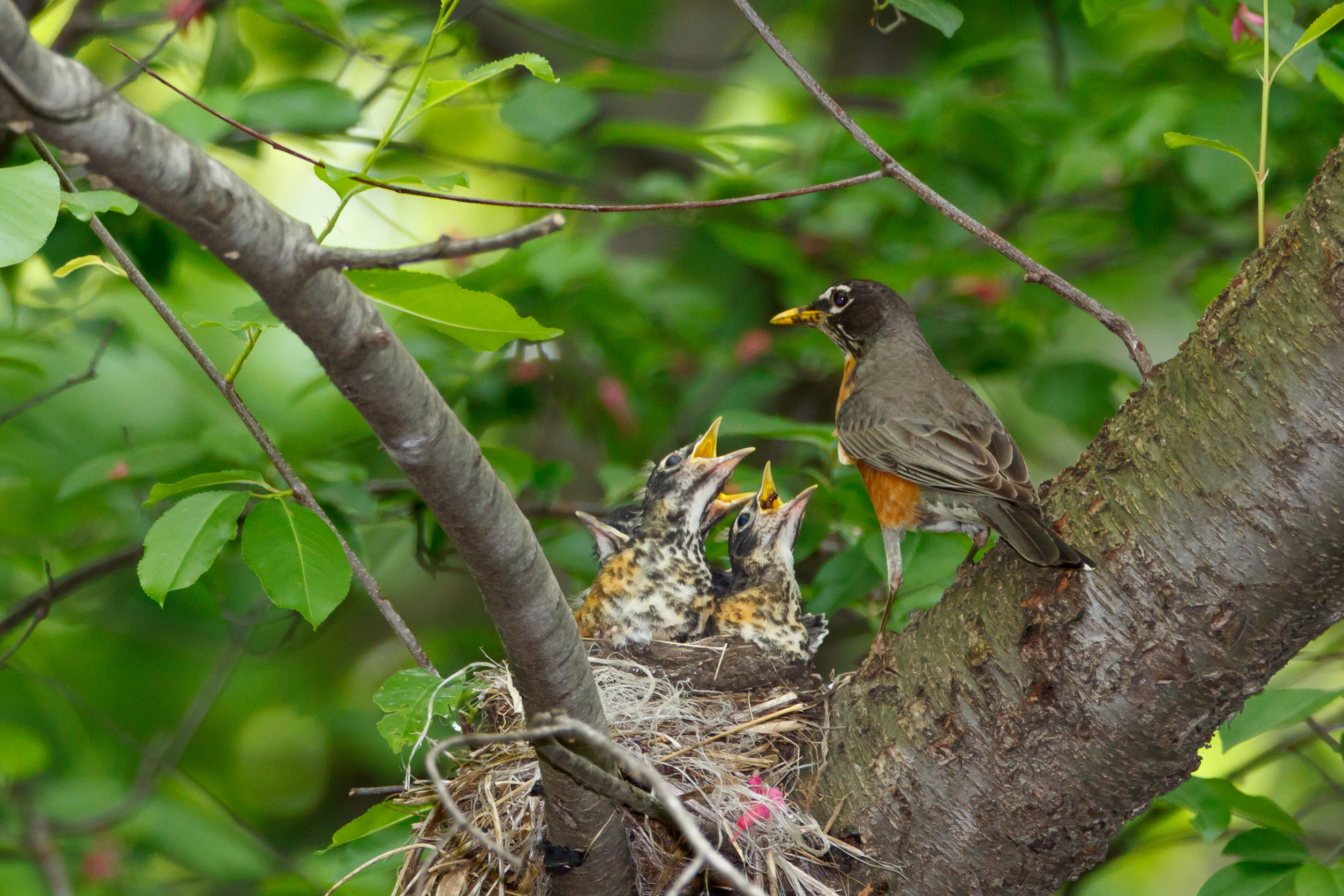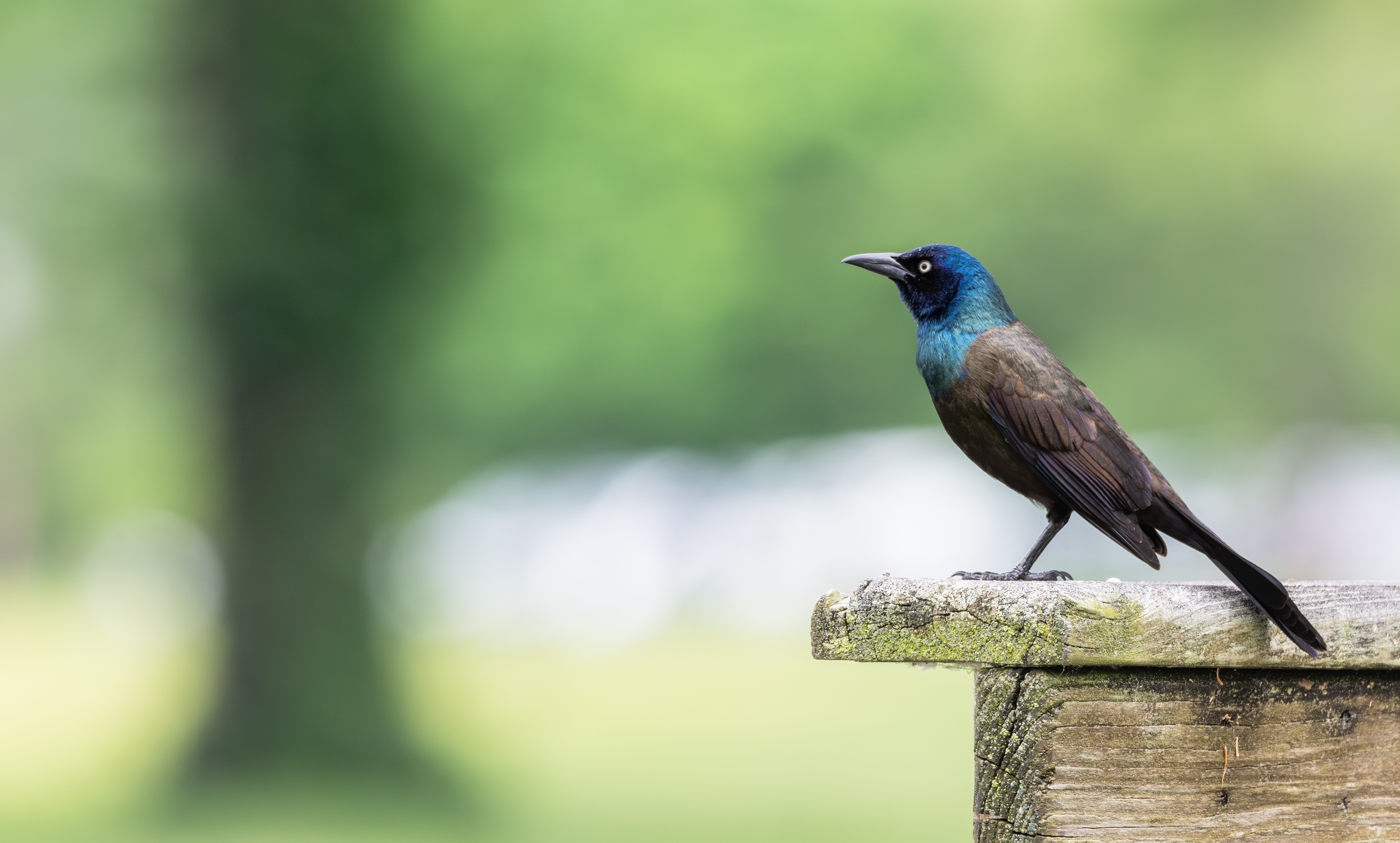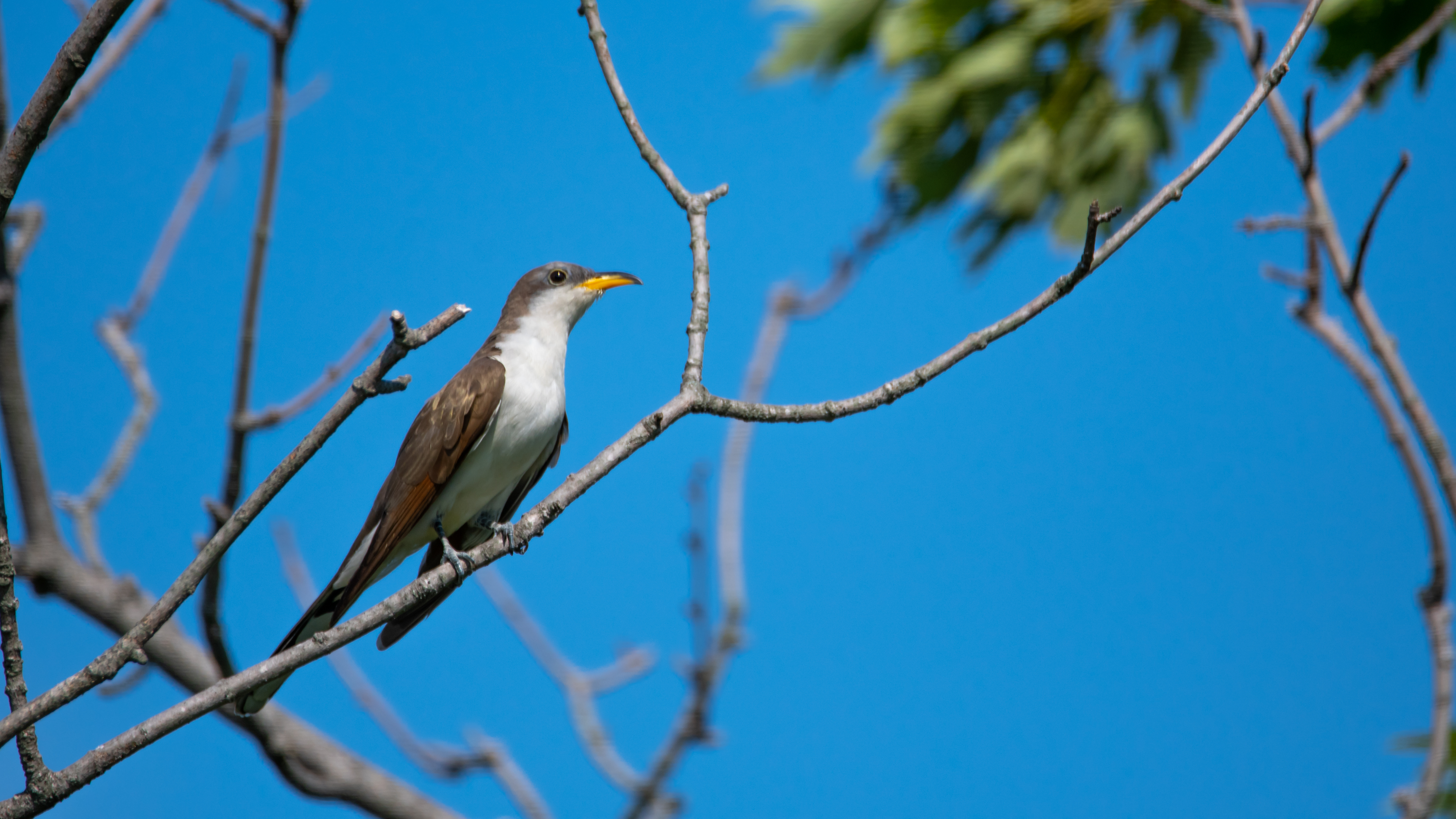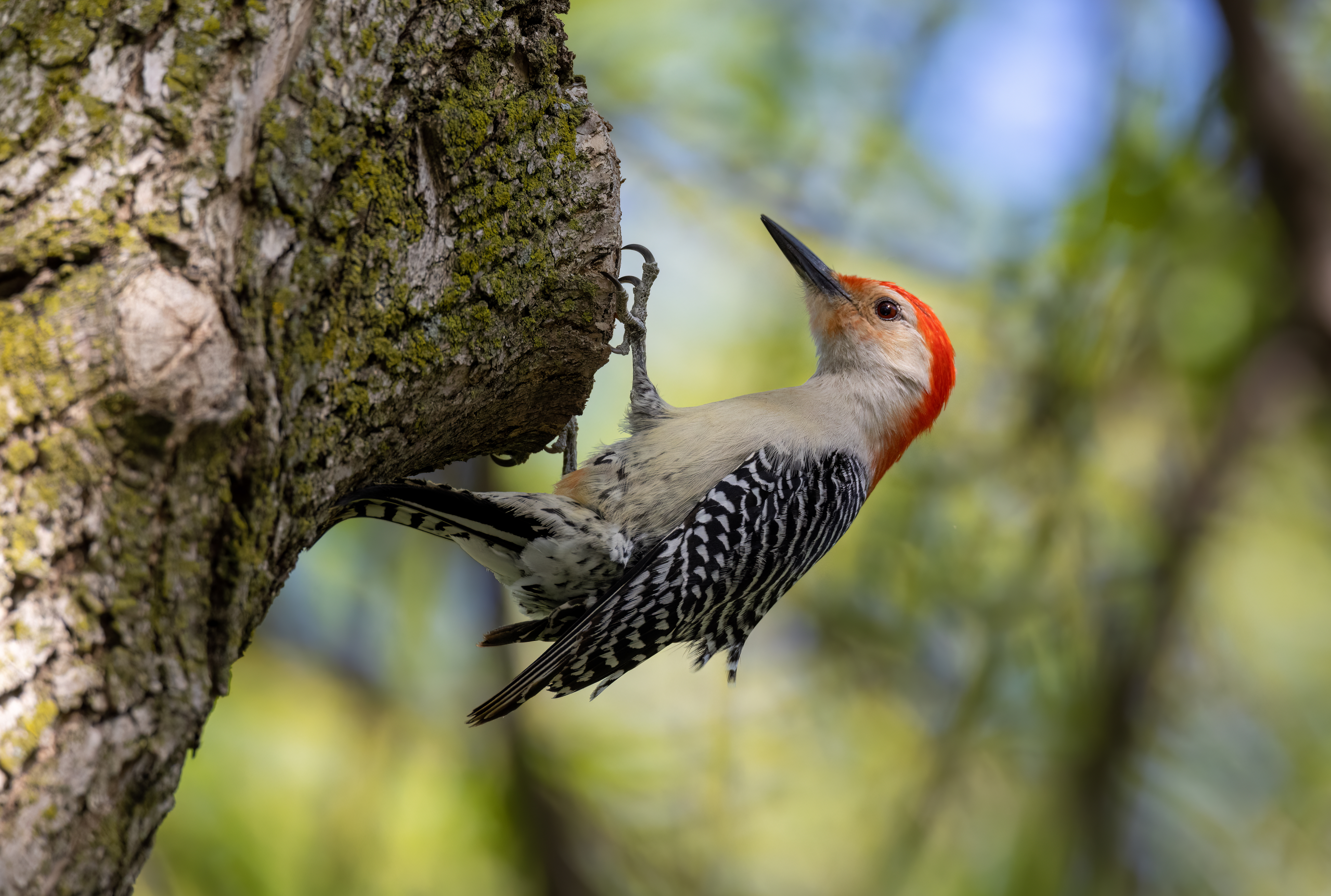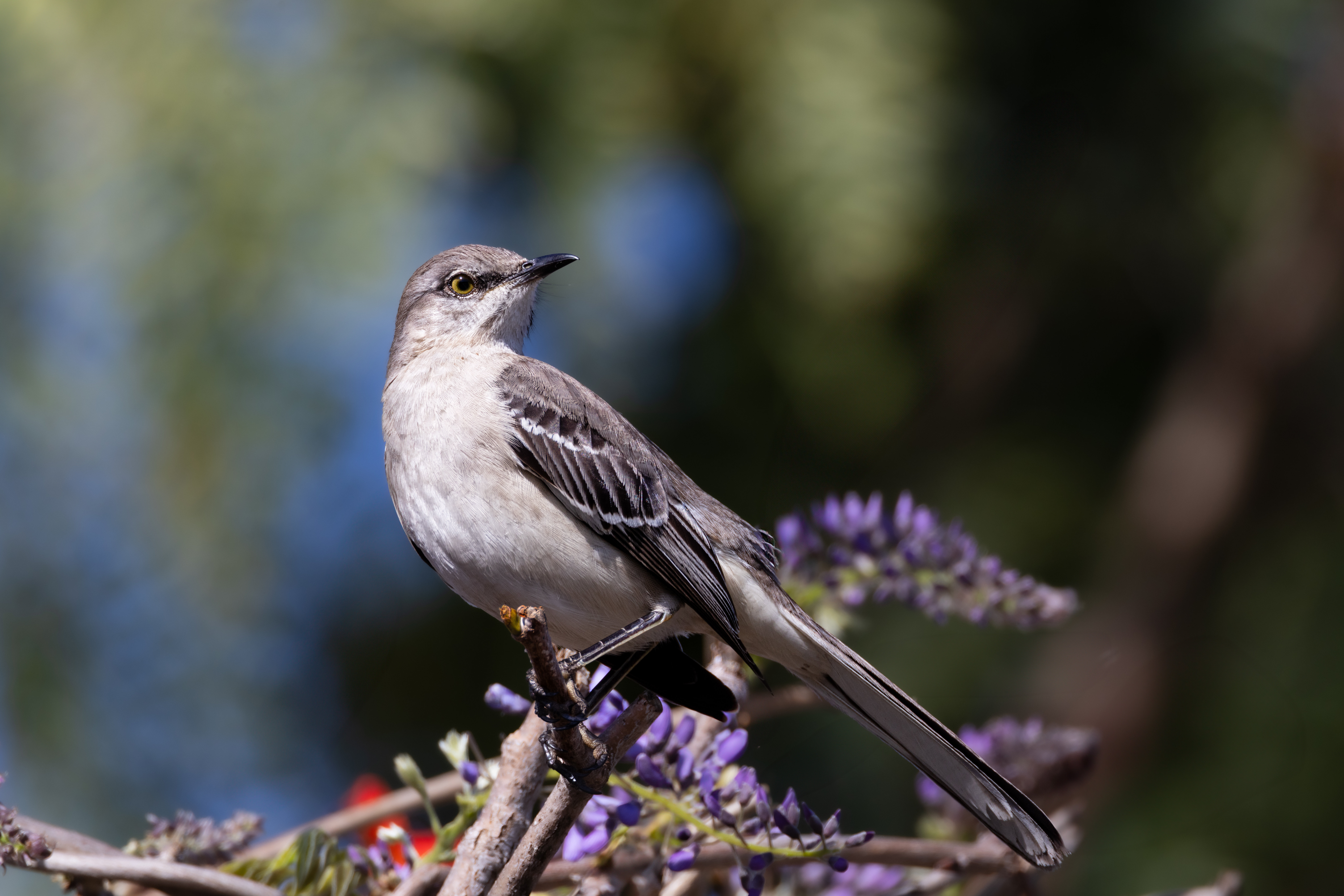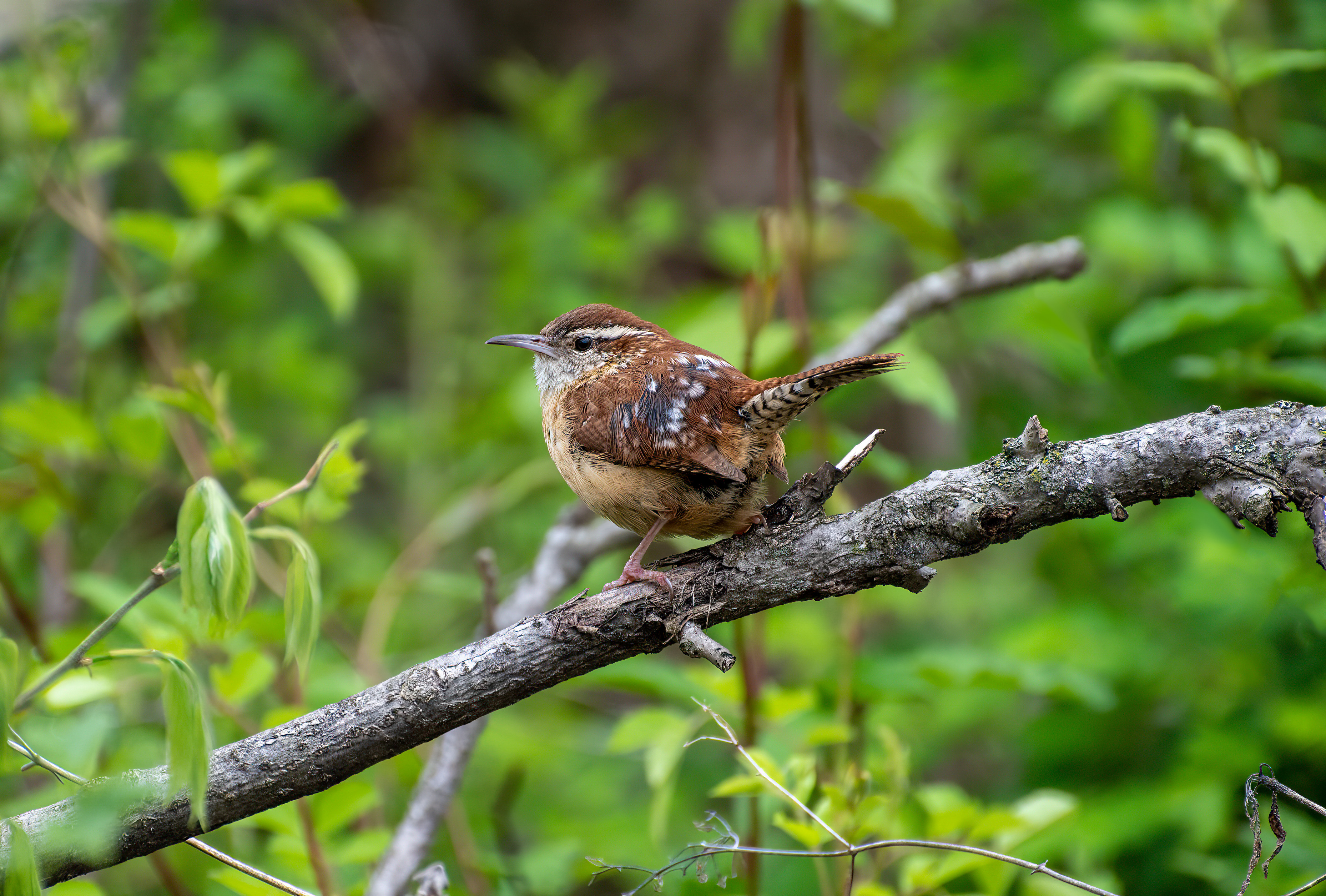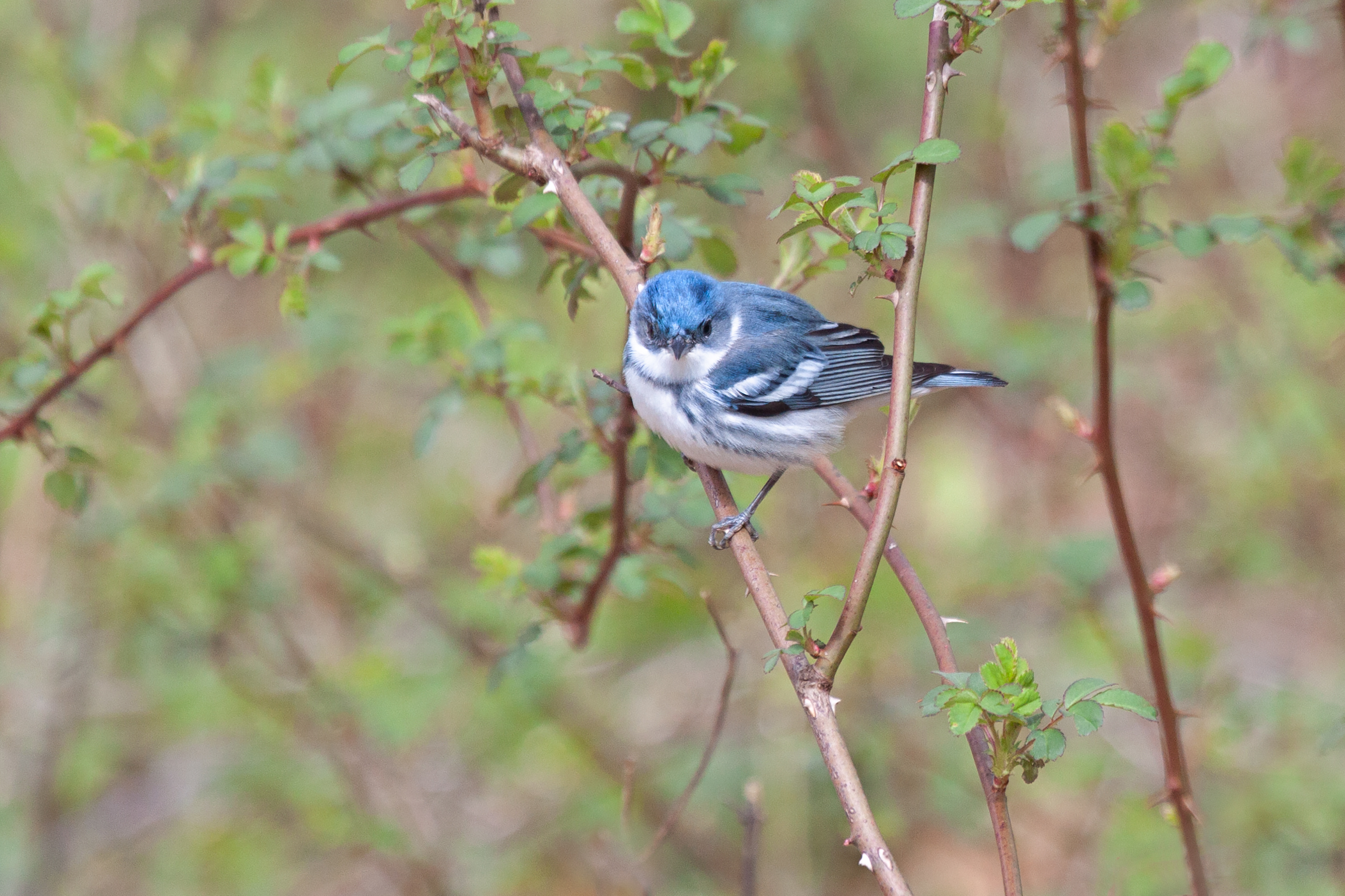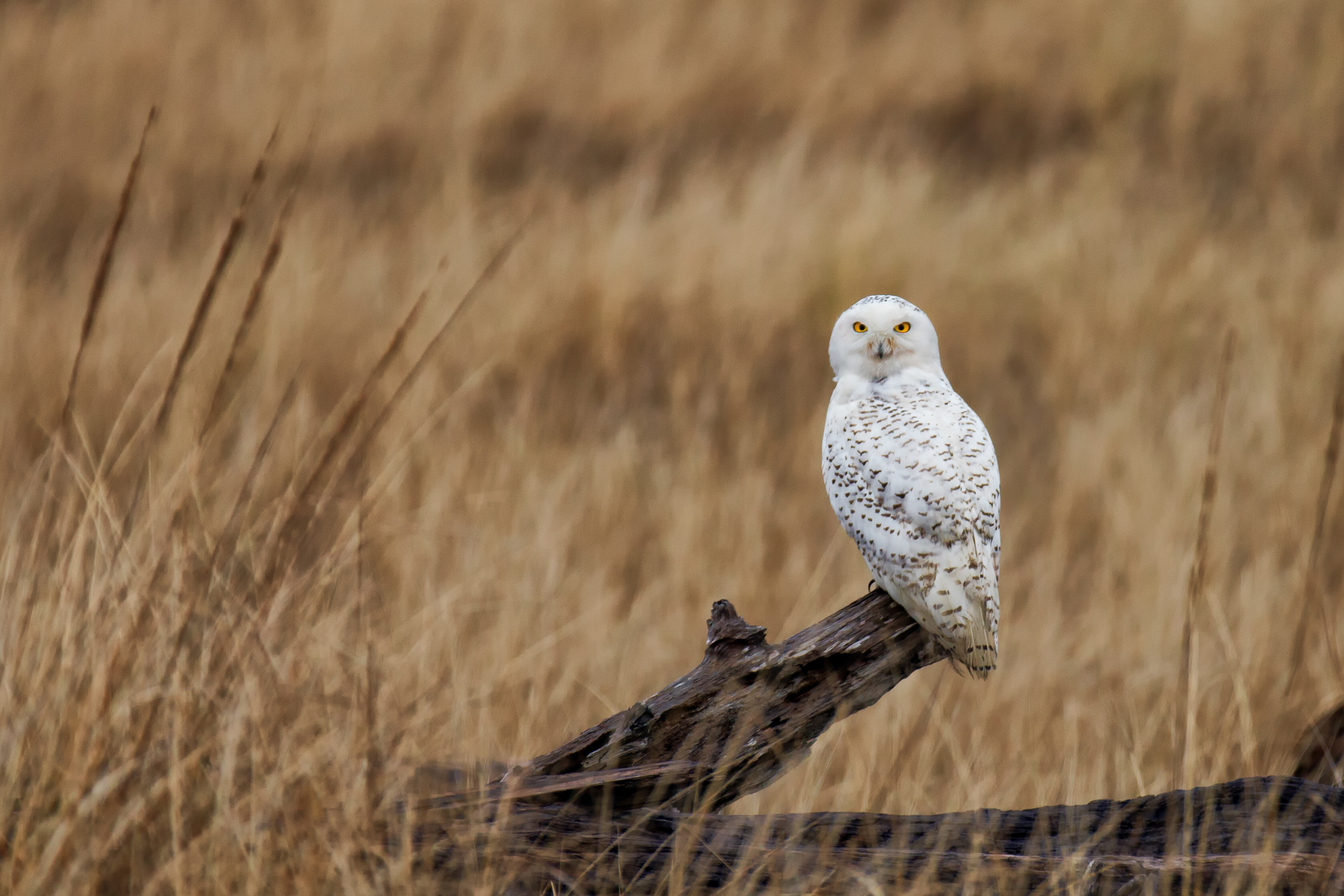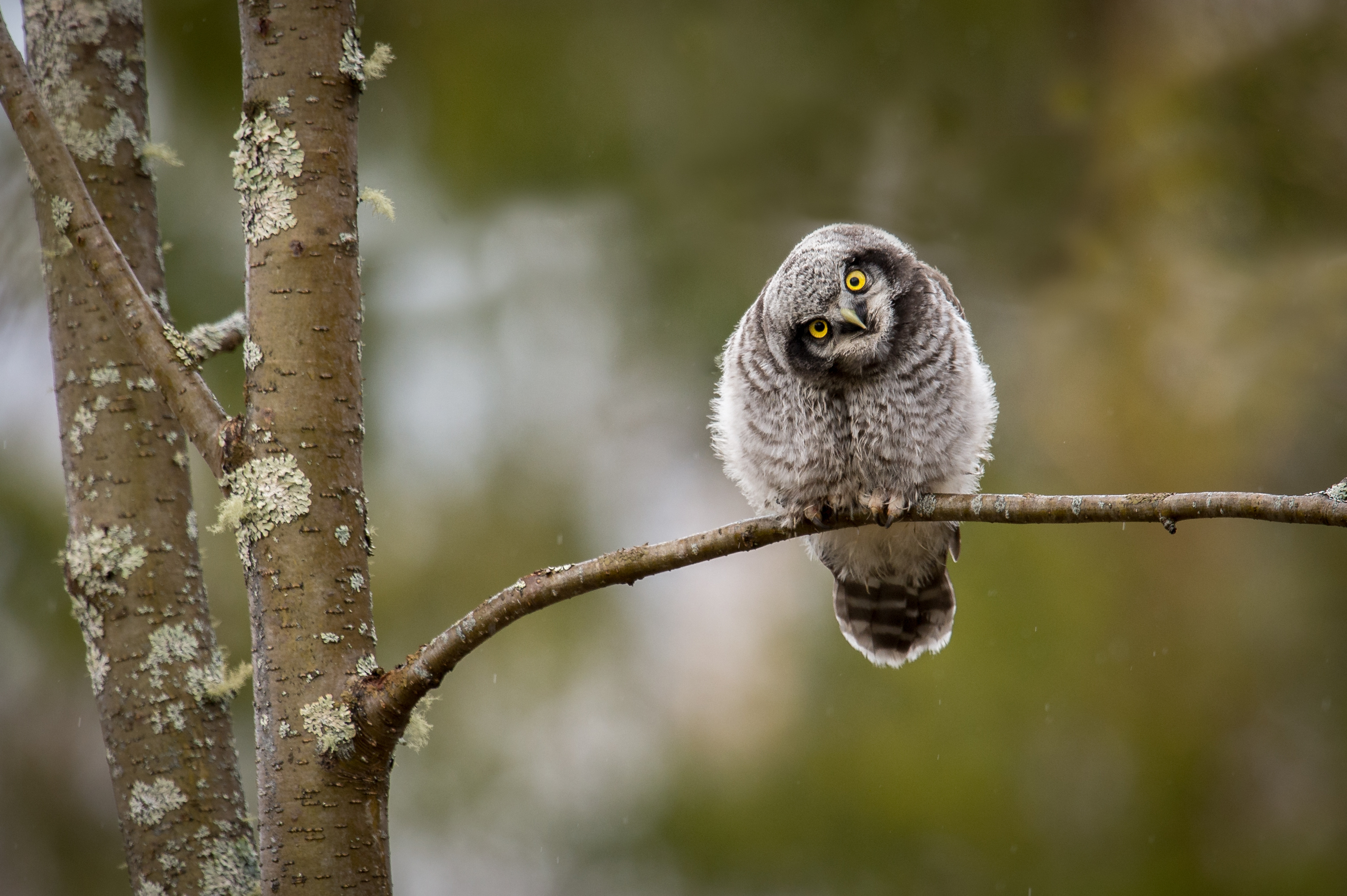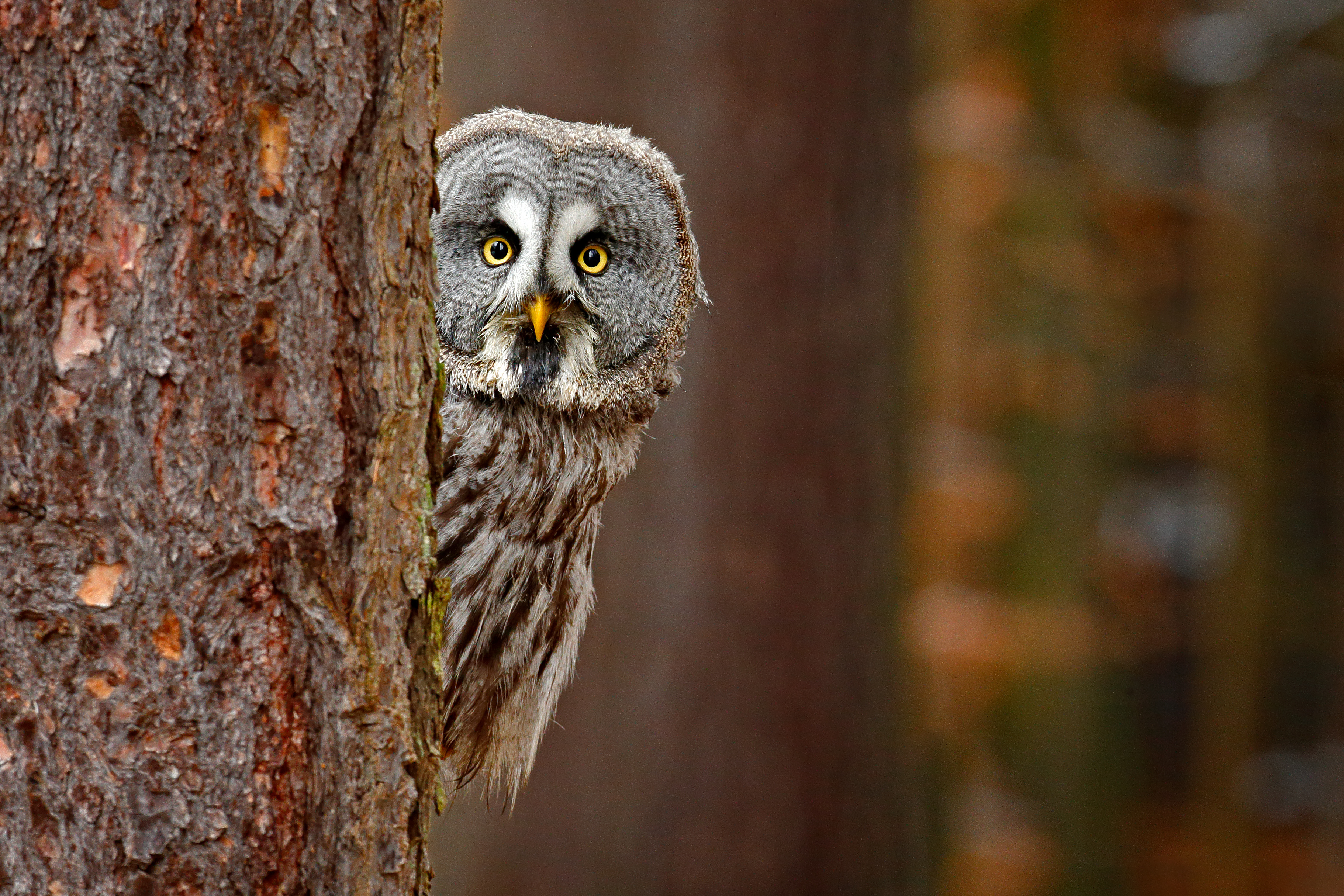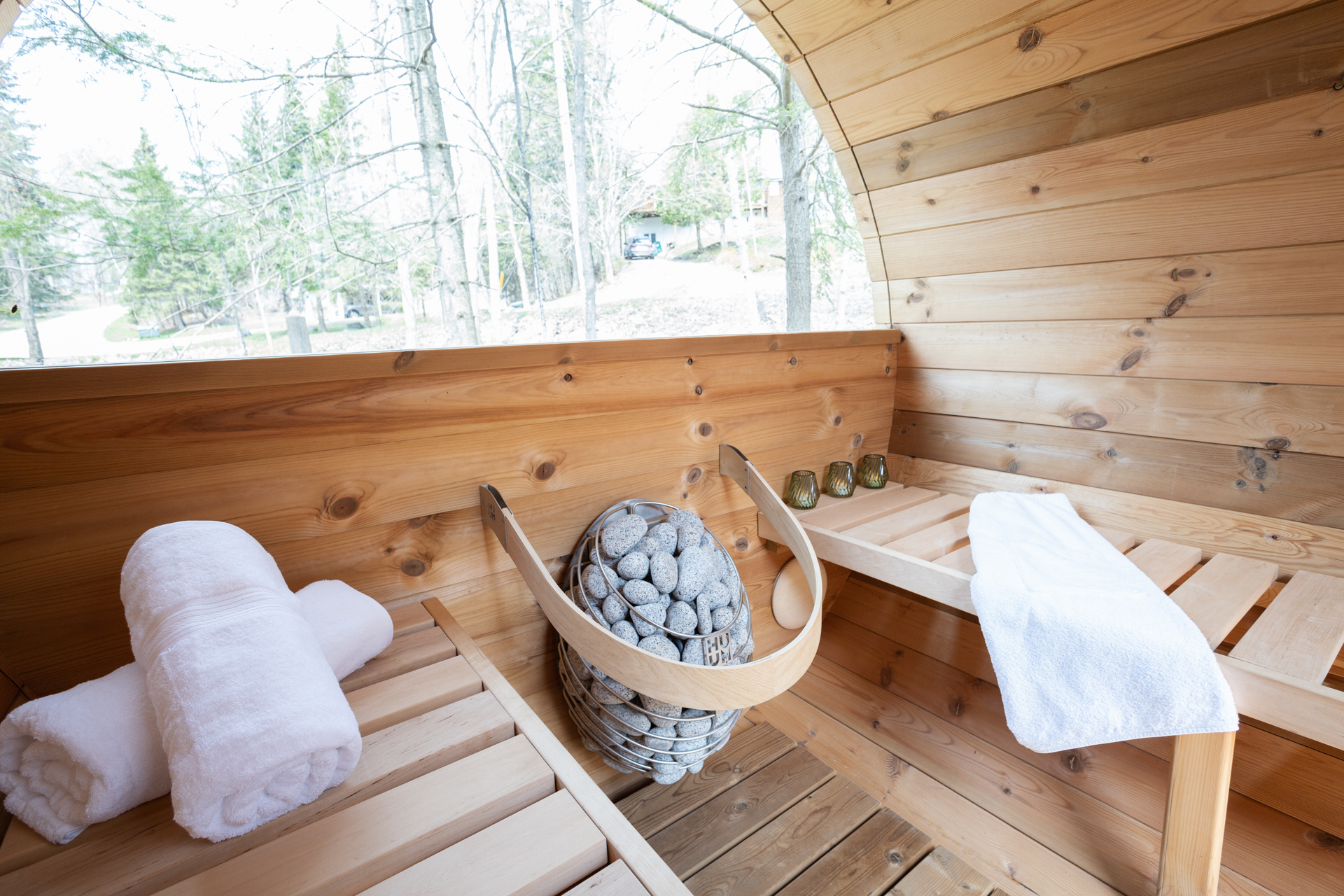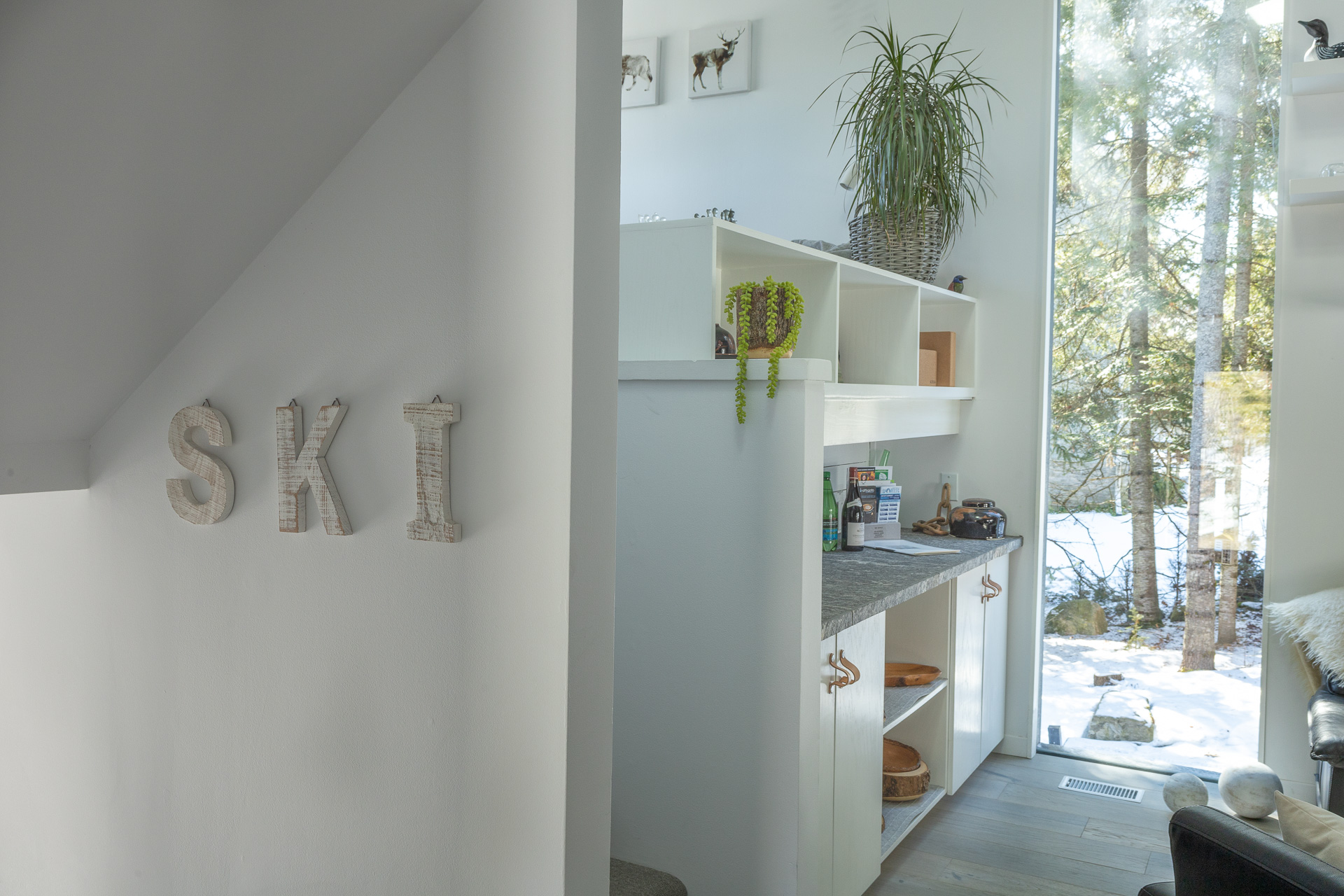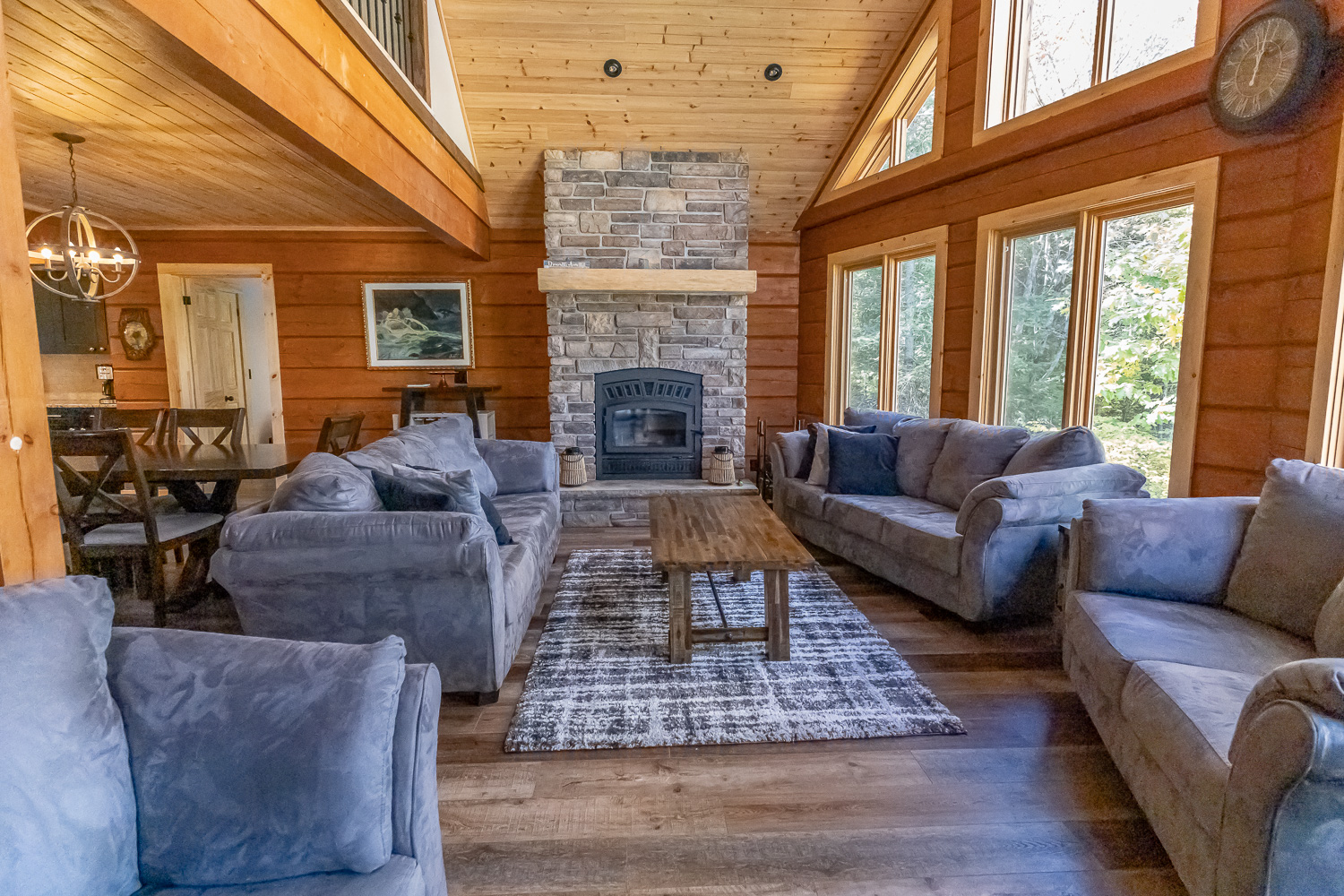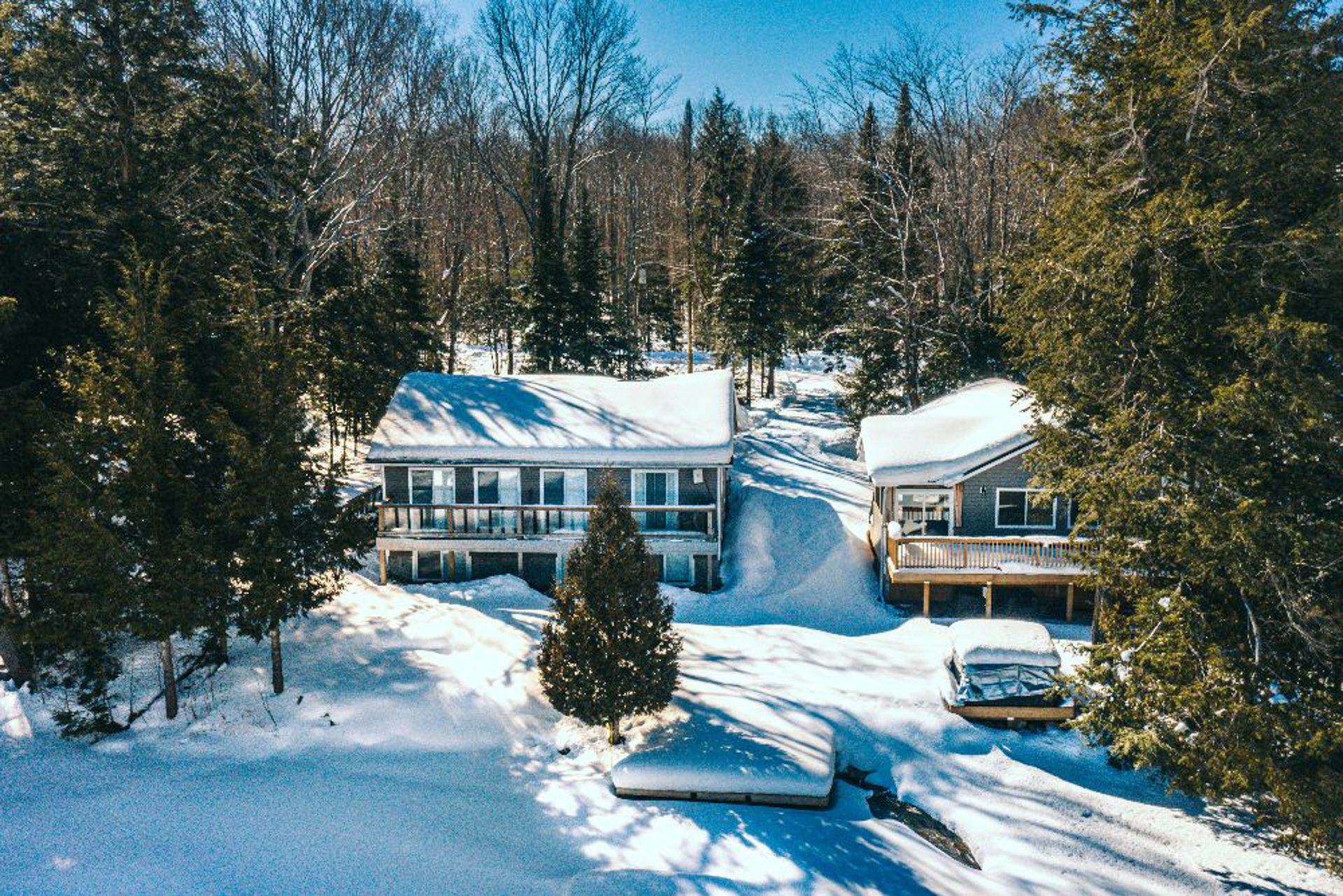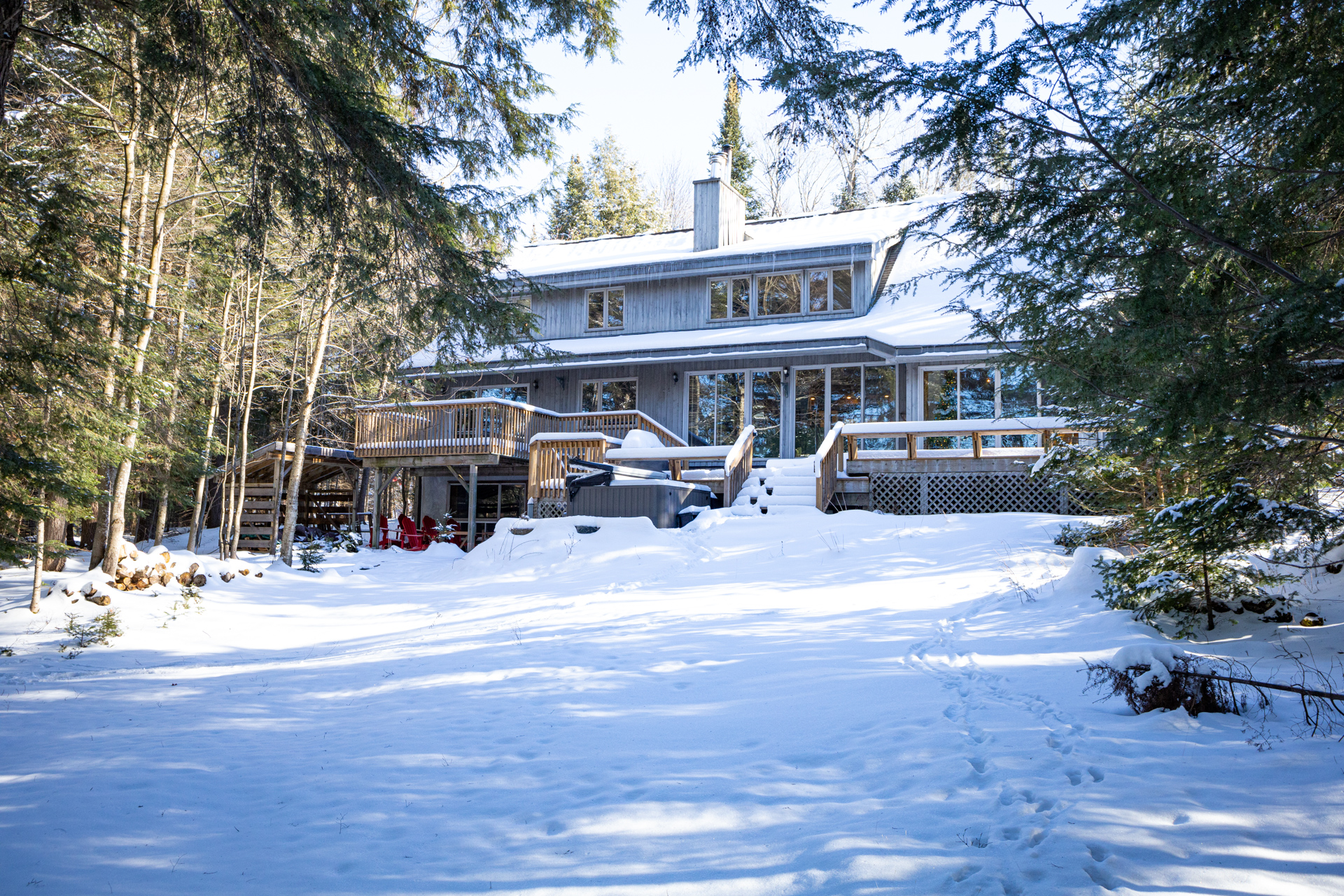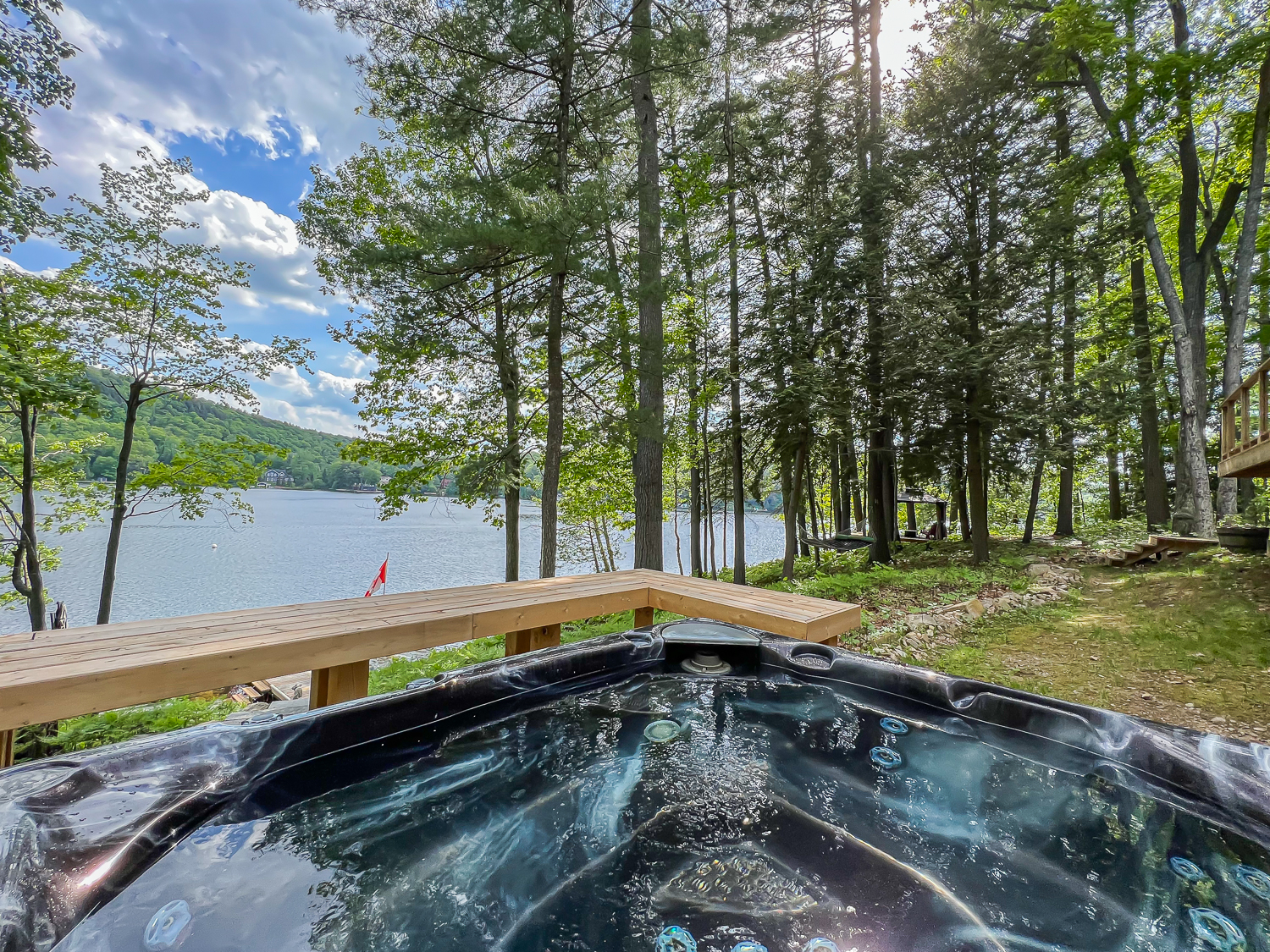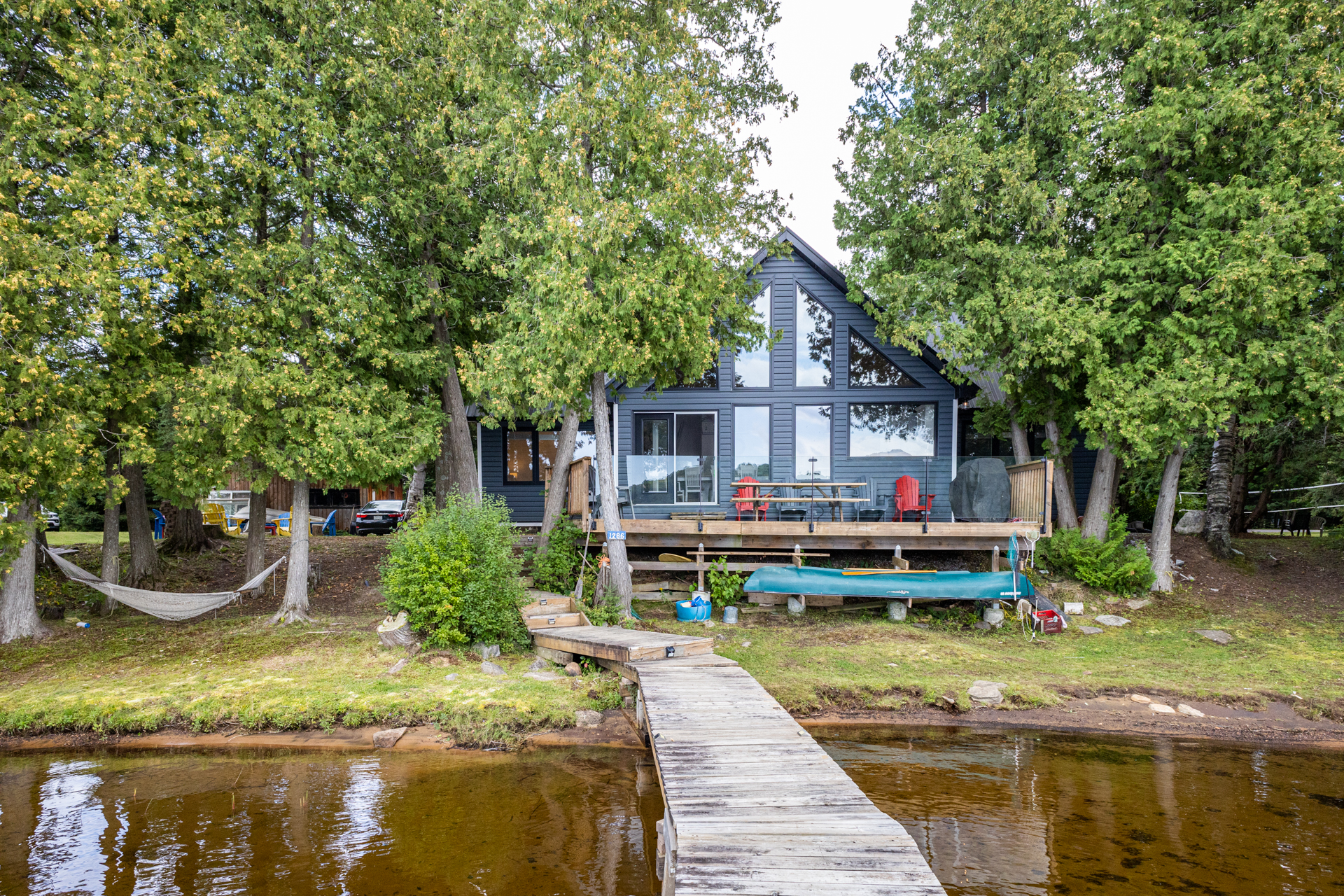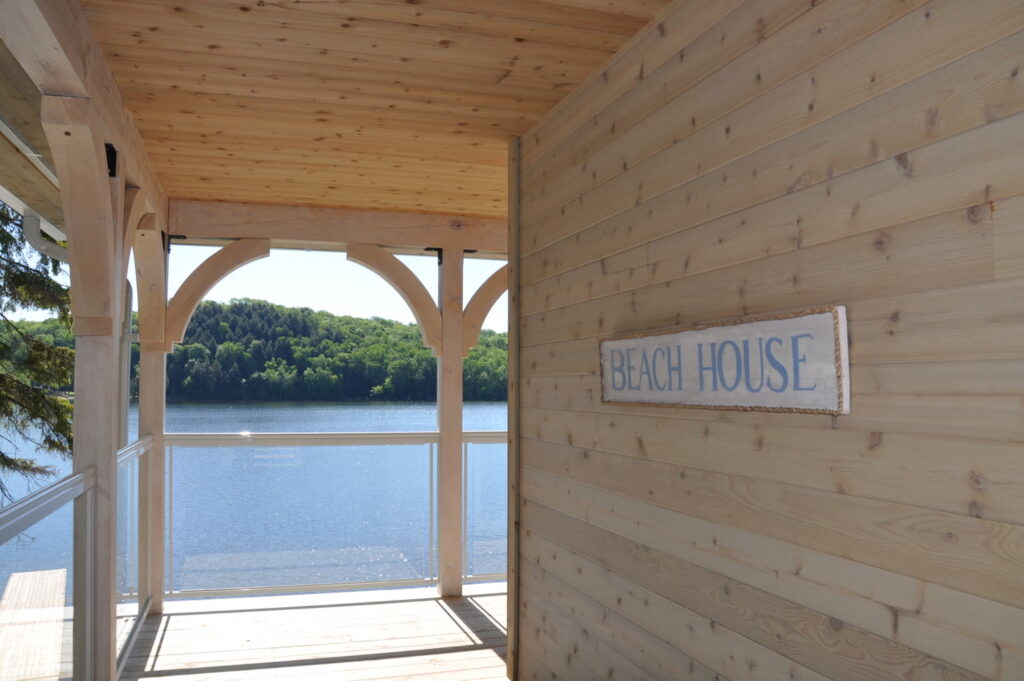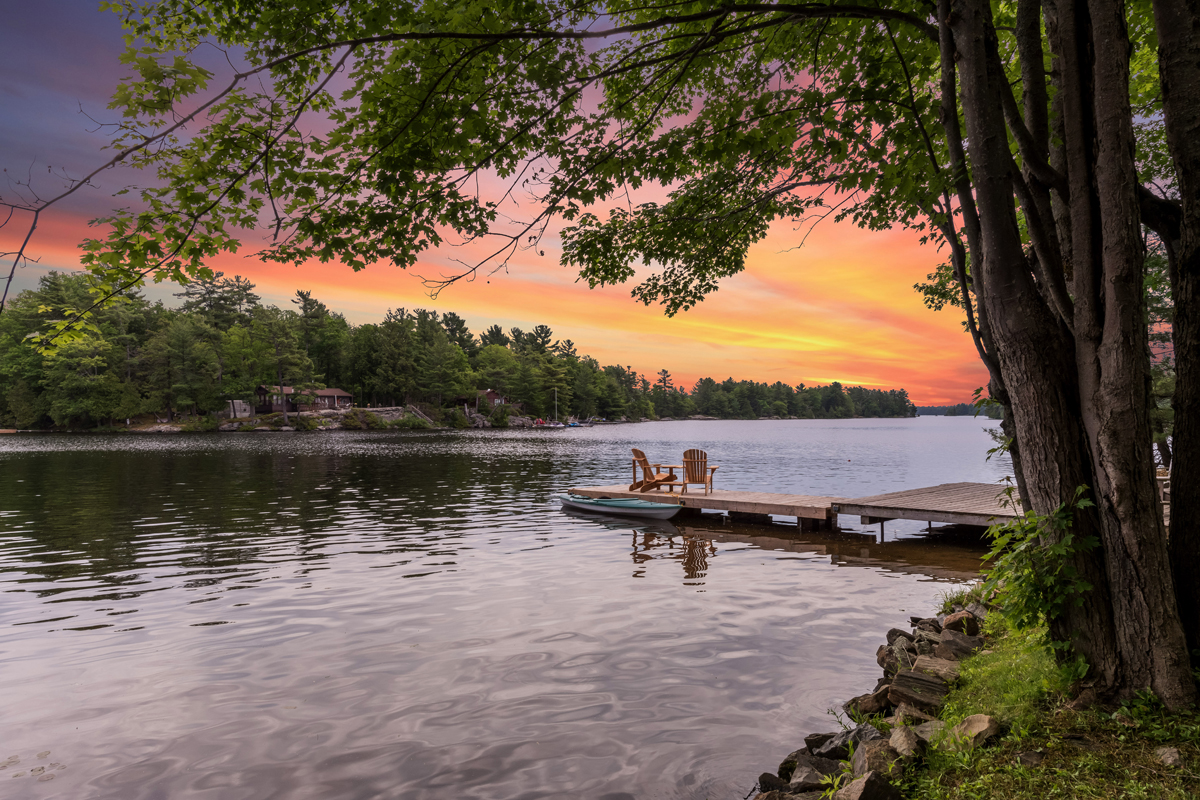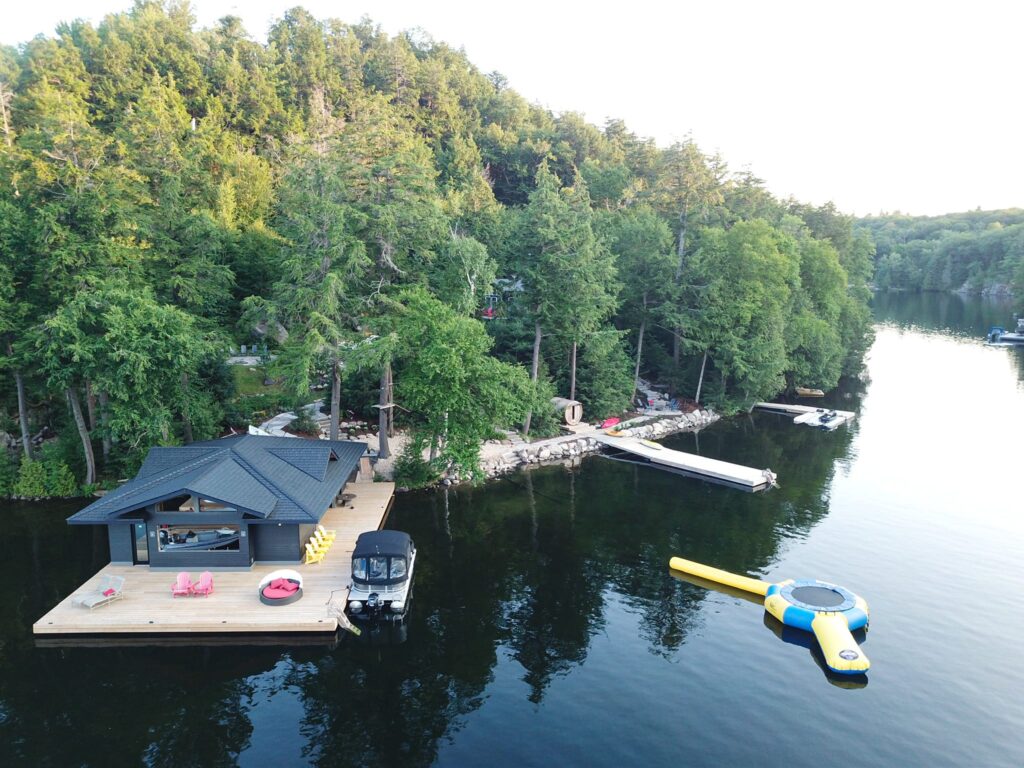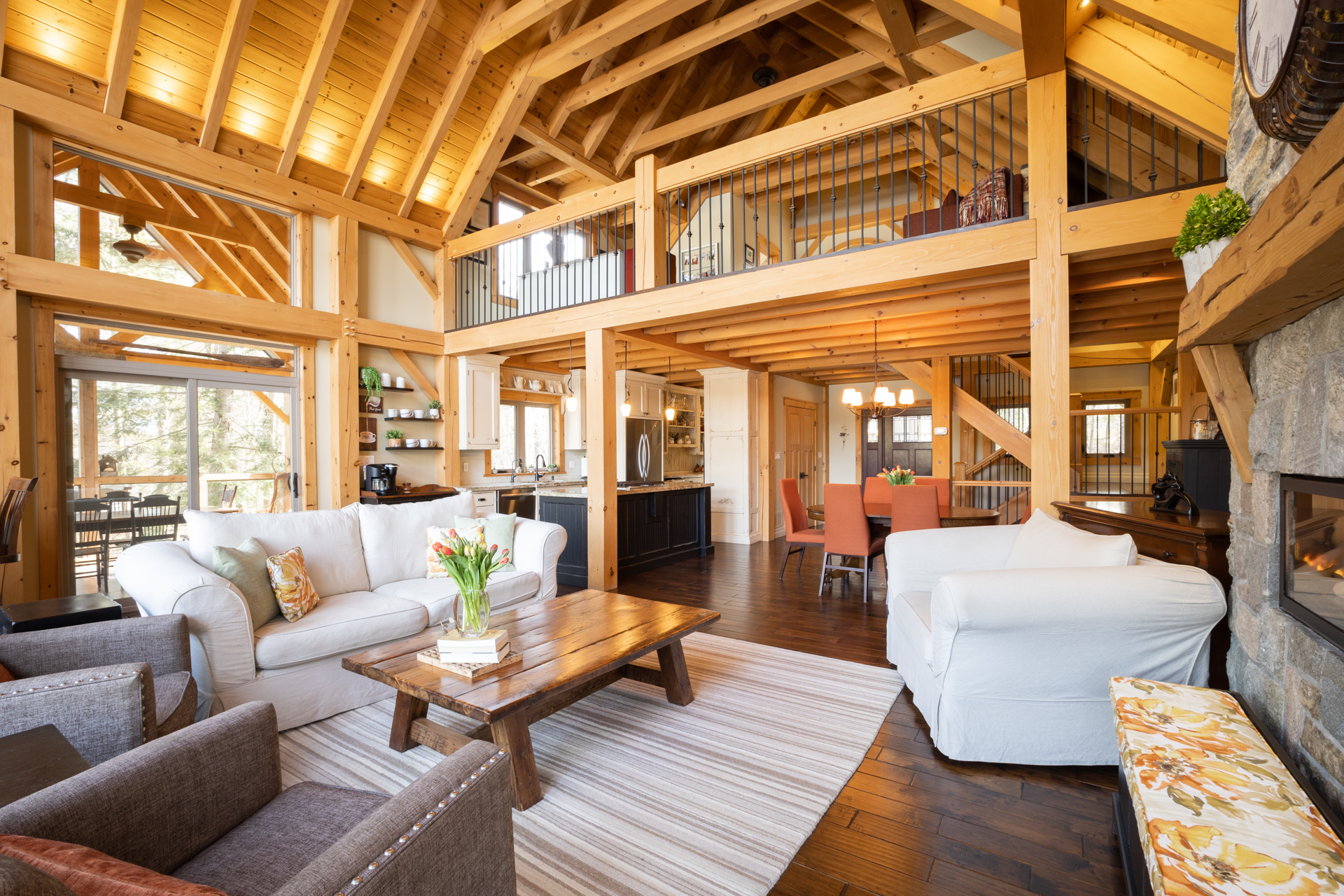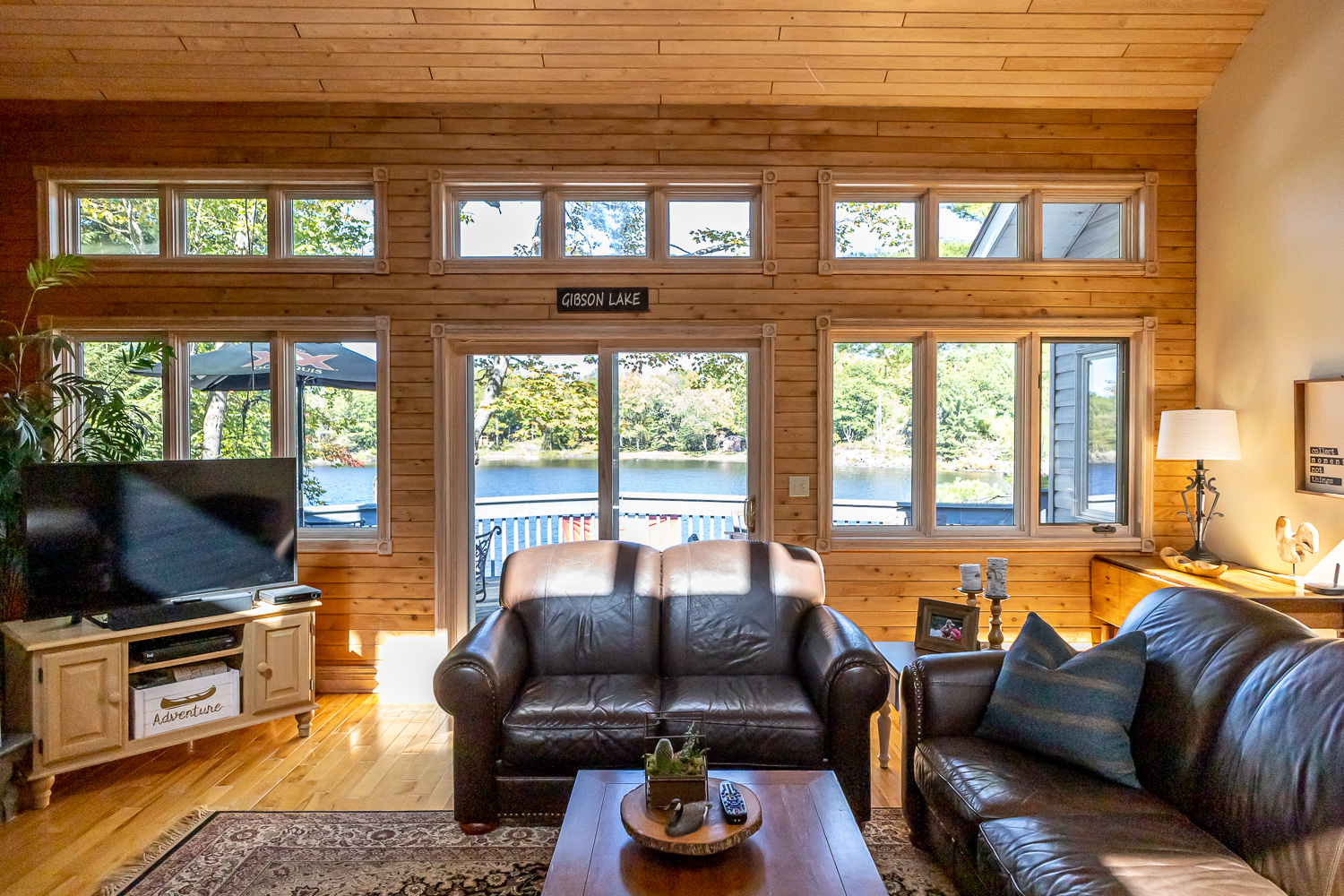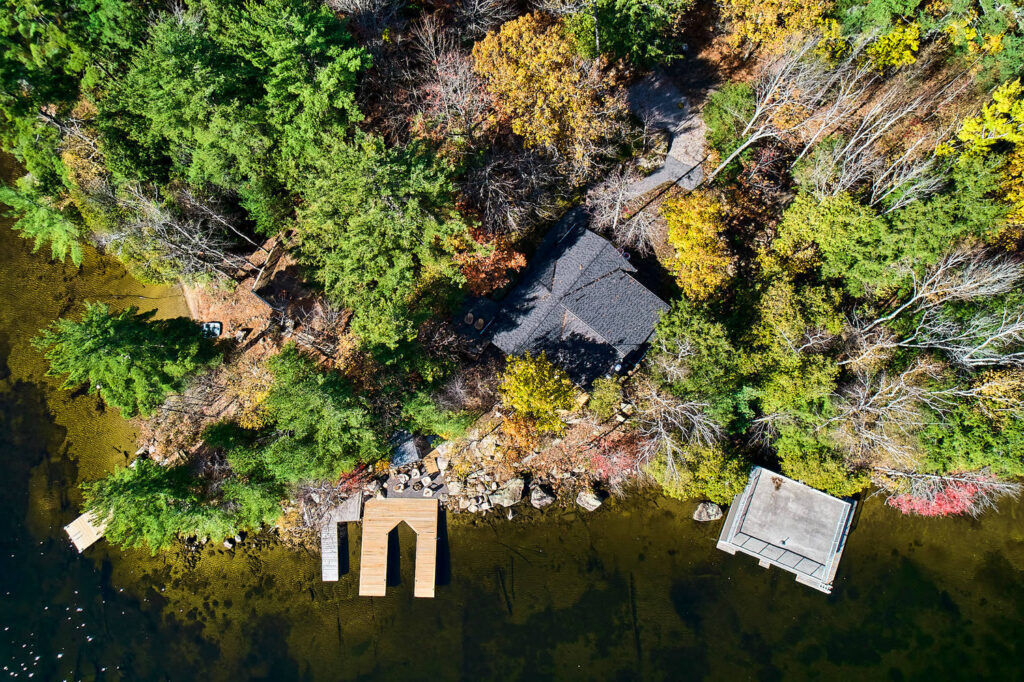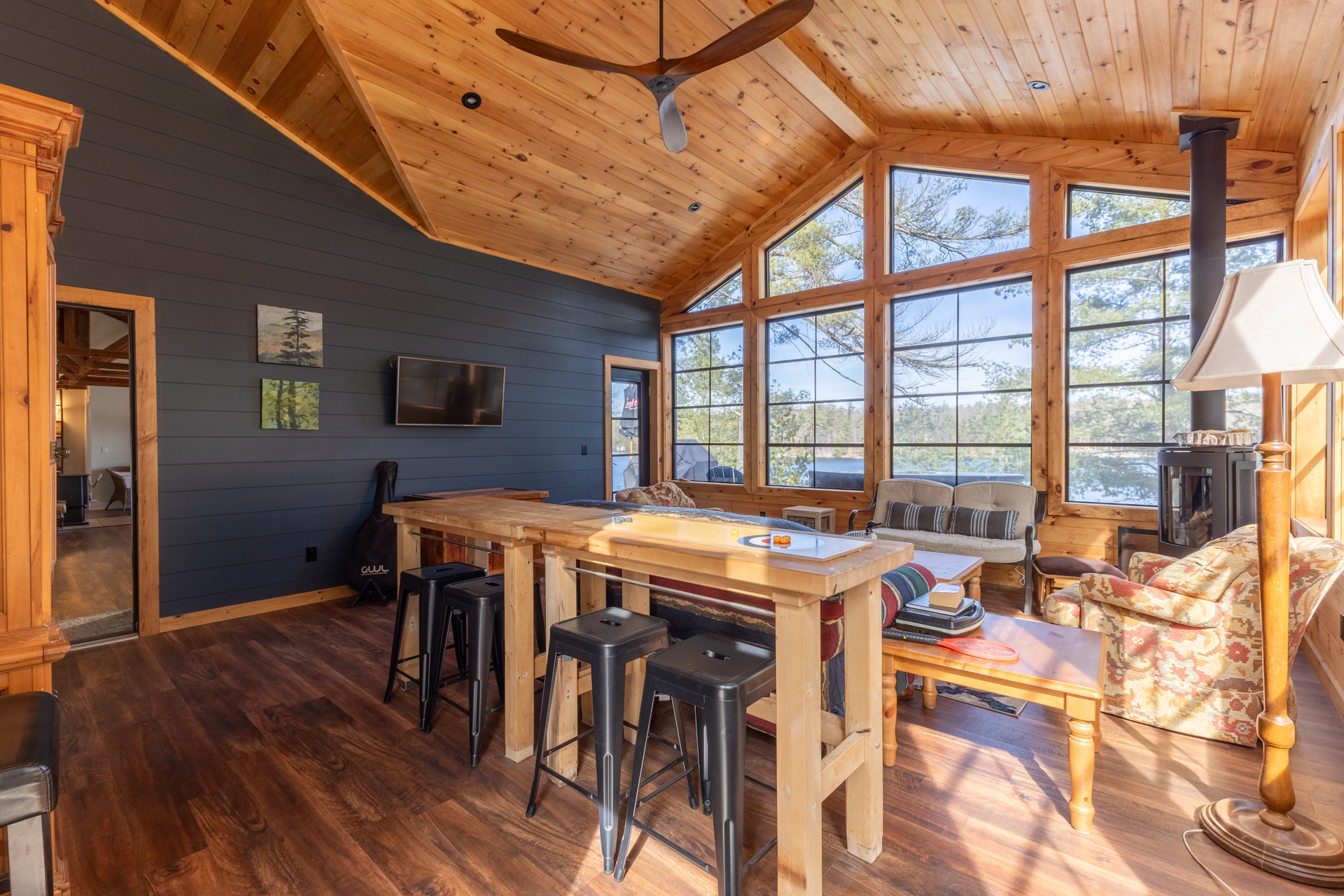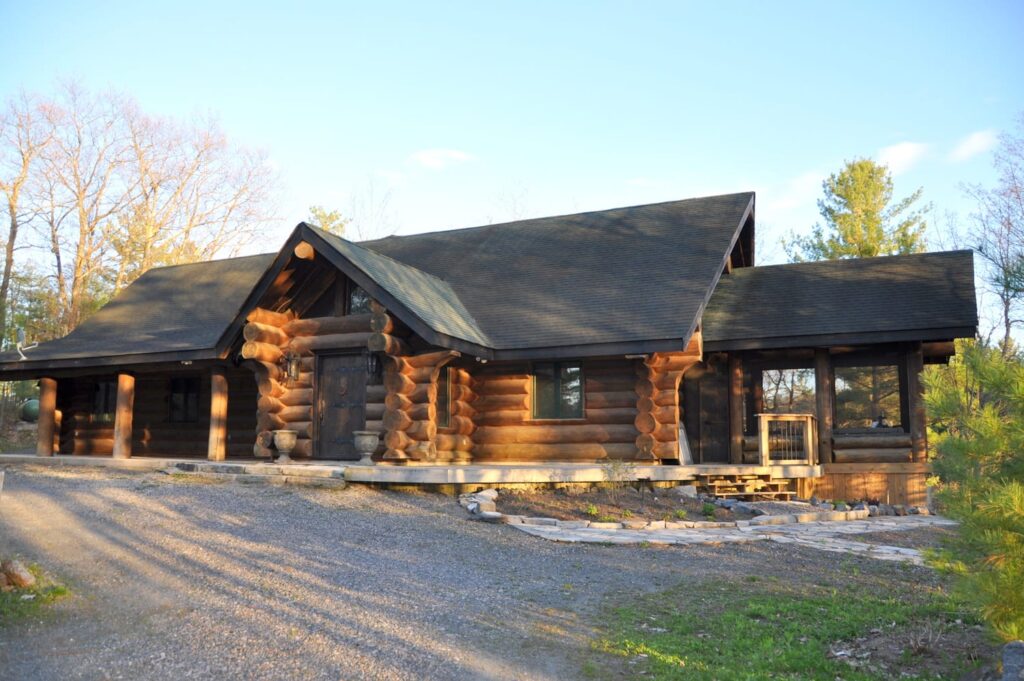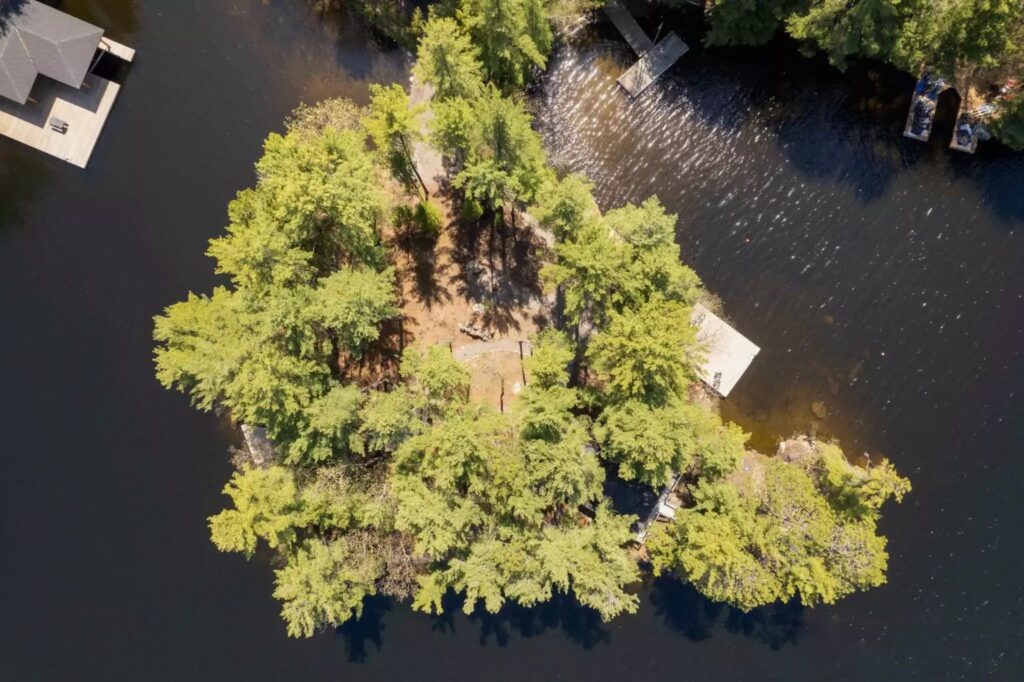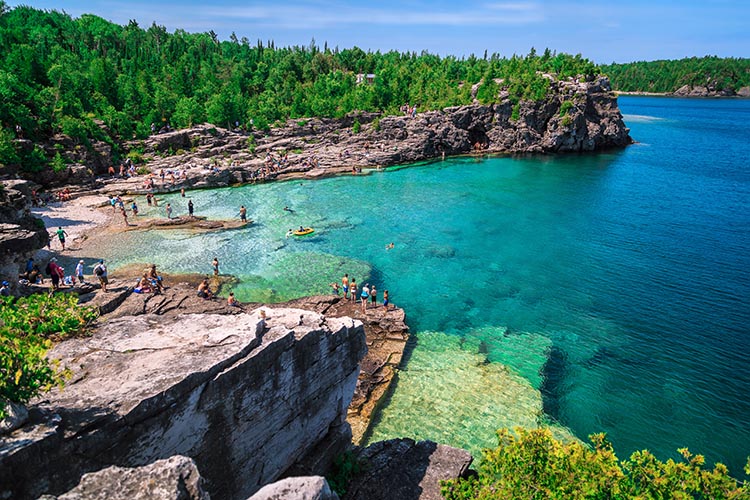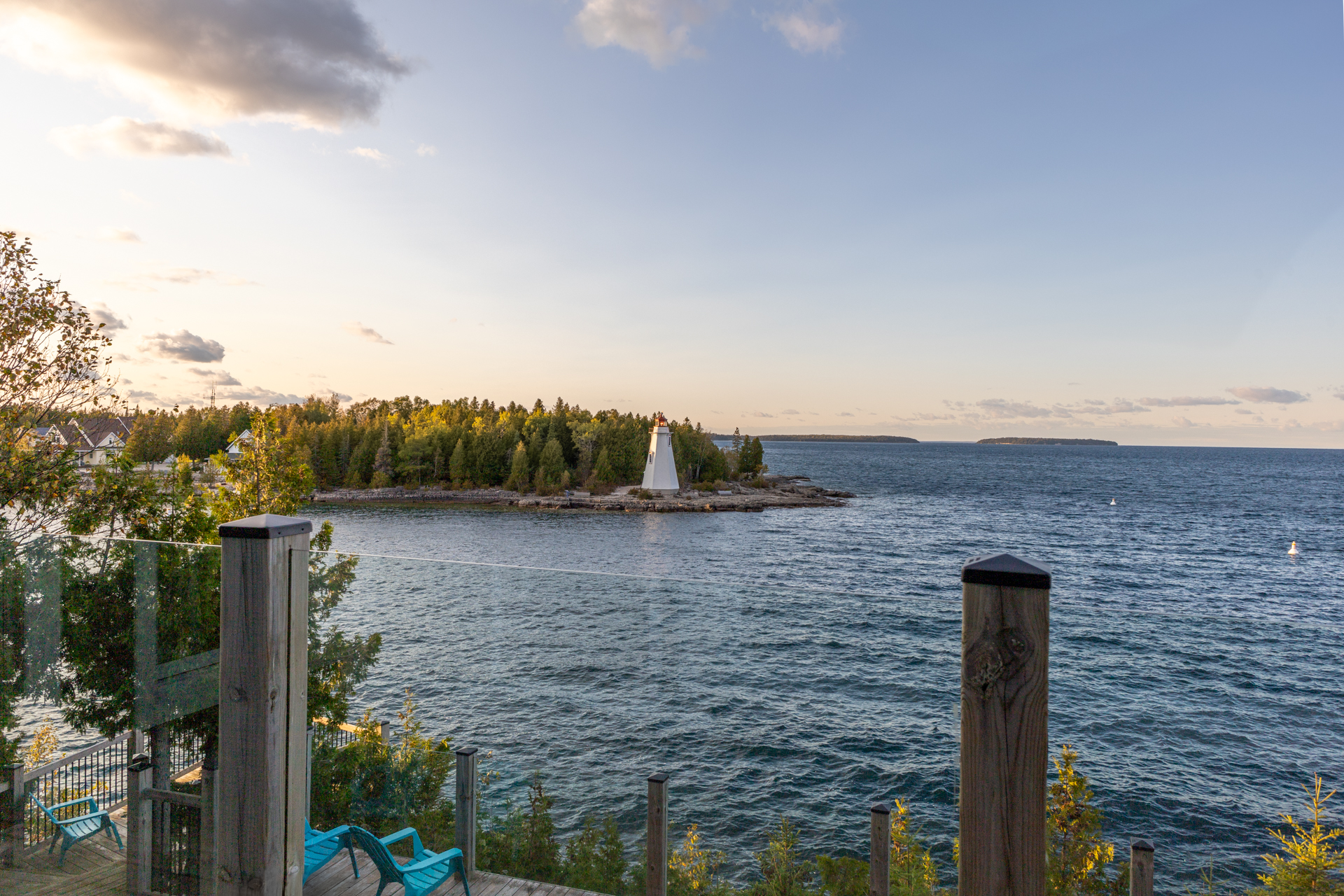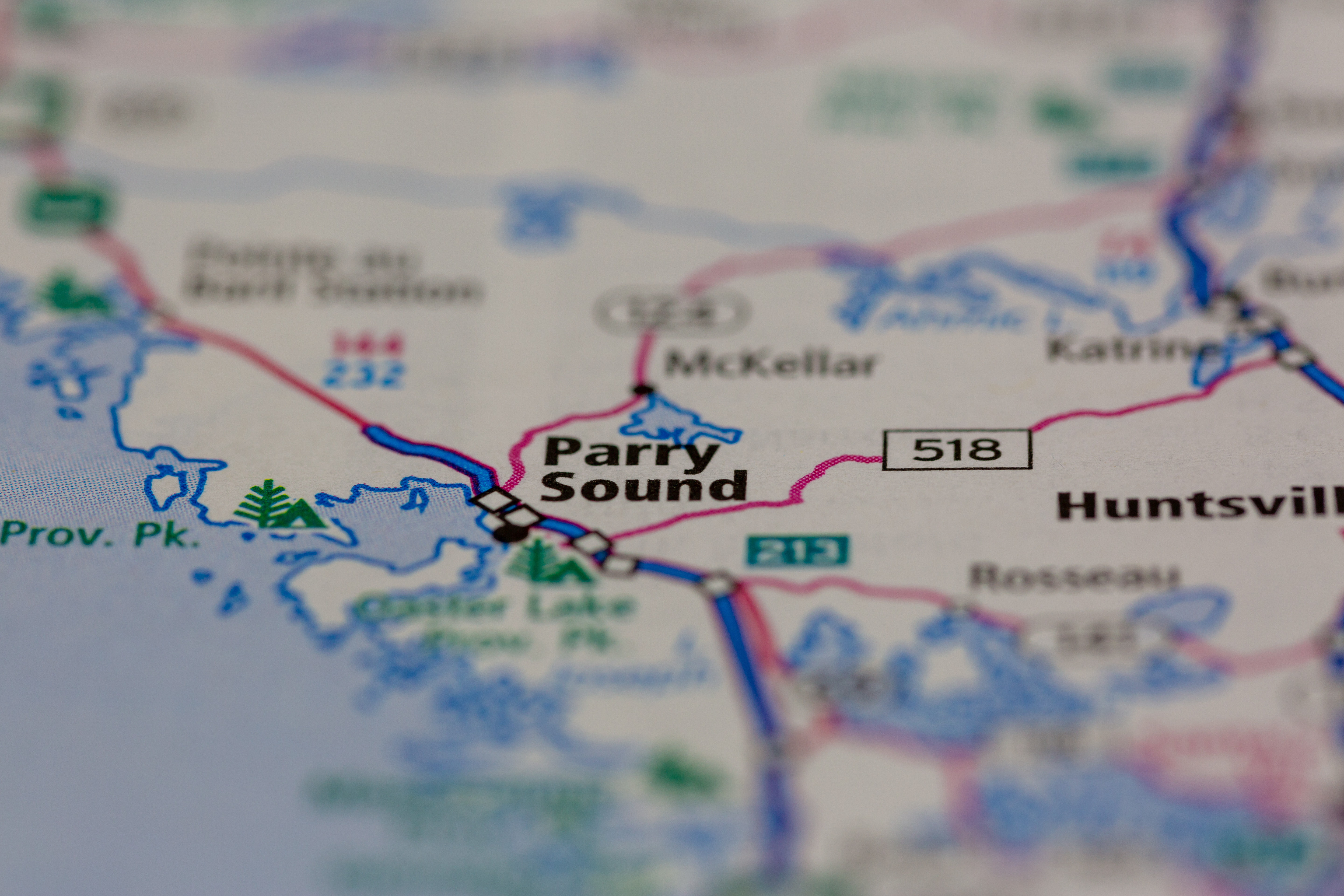Muskoka is home to some amazing wildlife, from animals as big as a moose, to as small as a chimpmunk. No matter the time of year, there is always enchanting wildlife to encounter. Just remember to do it safely!
Types of Wildlife
Black Bears: Majestic Guardians of the Forest
The American black bear (Ursus americanus), also known as the black bear, is the continent’s smallest and most widely distributed bear species. Since they hibernate through the winter, spring and early summer mornings offer the best chance to catch a glimpse of black bears foraging for food in Muskoka’s dense forests, or even in the lake, as they swim for pleasure and to hunt fish. Keep your eyes peeled along wooded trails or from the comfort of your lakeside cottage, but always remember to practice bear safety and admire these gentle giants from a safe distance.
White-Tailed Deer: Graceful Wanderers of the Woods
The white-tailed deer (Odocoileus virginianus) can be recognized by the characteristic white underside to its tail, which it raises when it is alarmed to warn the predator that it has been detected. Its coat is a reddish-brown in the spring and summer, and turns to a grey-brown throughout the fall and winter. Spring and summer are ideal times for spotting deer, while autumn brings the spectacle of rutting aka mating season, with bucks showcasing their antlers in majestic displays.

Moose: The Mighty Royalty of the North
The moose, Alces americanus, is the world’s tallest, largest and heaviest extant species of deer, and the tallest, second-largest, land animal in North America, falling short only of the American bison in body mass. One of the most iconic Canadian animals, they really are a sight to behold. Explore Muskoka’s marshes and wetlands during the cooler months for a chance to encounter the mighty moose. Remember to practice moose safety, as they are extremely strong, and can be territorial.
Red Fox: Clever Denizens of the Forest
The red fox, Vulpes vulpes, is the largest of the true foxes, and are usually found in pairs or small groups consisting of families. The children often stay with their parents to help with new babies. Autumn evenings offer the best chance to spot these cunning creatures, their russet coats blending seamlessly with the vibrant foliage of the forest.
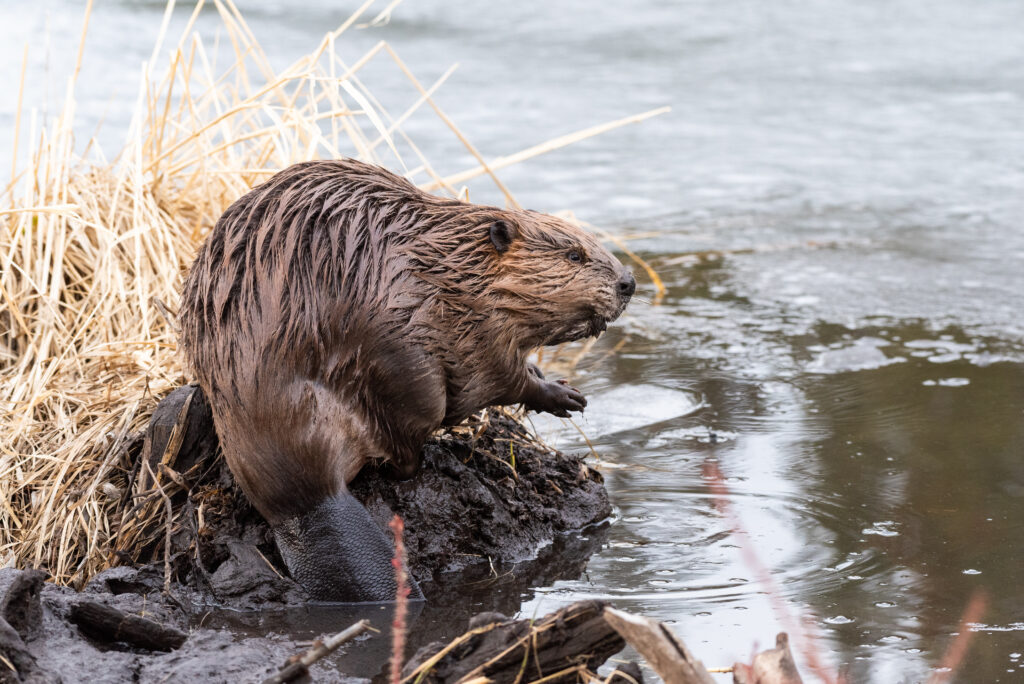
Beaver: Master Builders of the Wetlands
Beavers are one of the most iconic Canadian animals. They are large, semi aquatic rodents, famous for cutting down trees with their buckteeth and using them to build dams along the river, which they then live in. There are two existing species: the North American beaver, Castor canadensis, and the Eurasian beaver, C. fiber. Venture to Muskoka’s ponds and streams during the early mornings or evenings to observe the industrious beaver at work. Look for their distinctive dams and lodges, evidence of their remarkable engineering skills and their importance in shaping the region’s aquatic ecosystems.
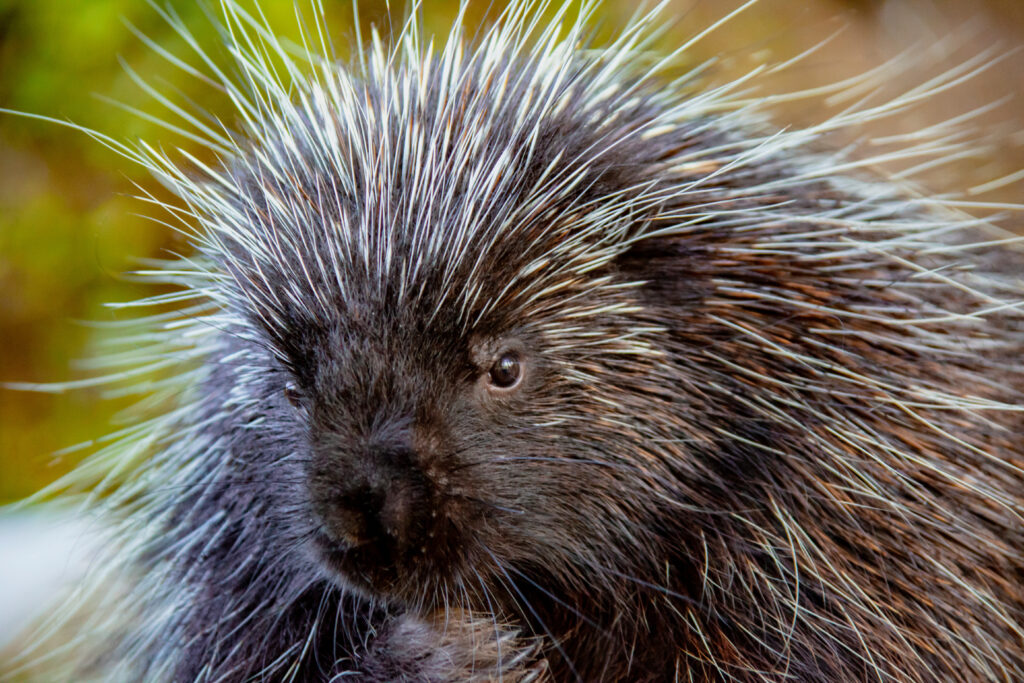
Porcupine: Quiet Dwellers of the Forest Floor
Porcupines are large rodents with coats of sharp spines, or quills. Coloured in various shades of brown, grey and white and mostly nocturnal, they live in wooded areas and can climb trees, where some species spend their entire lives. Keep a sharp eye out for them during the cooler hours of dawn or dusk, high in the trees or scuttling along the forest floor.
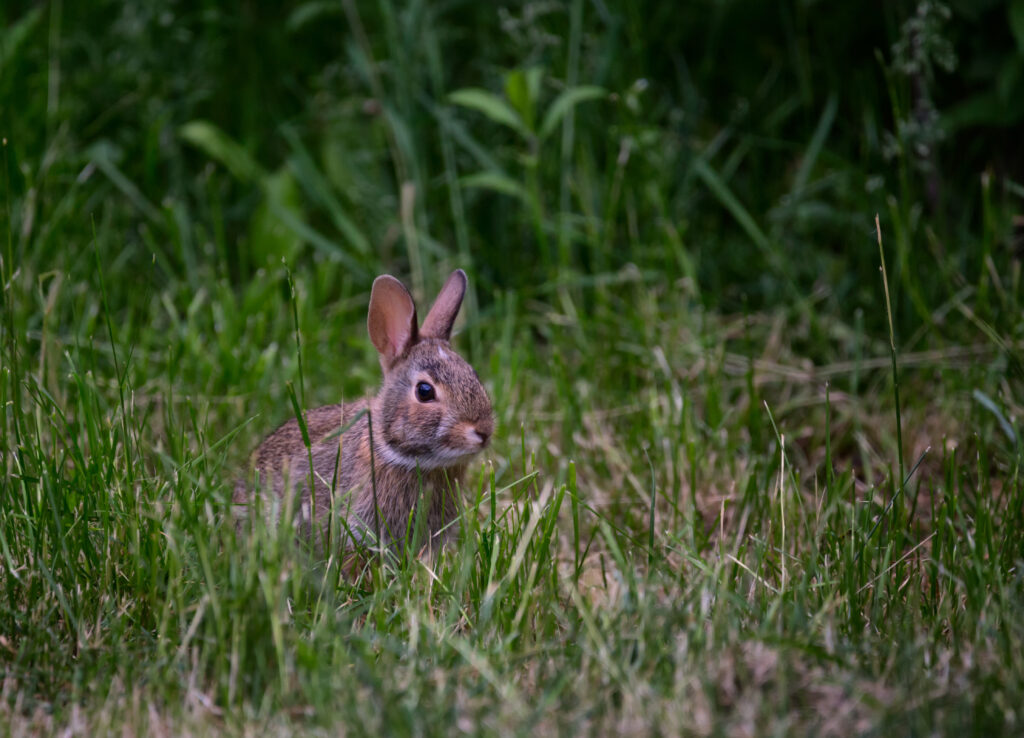
Eastern Cottontail Rabbit: Delightful Inhabitants of Meadows
The eastern cottontail, Sylvilagus floridanus, resides in grassy areas, clearings, and old fields supporting abundant green grasses and herbs, with shrubs in the area or edges for cover, as well as wooded thickets, forest edges, and suburban areas with adequate food and cover. They are also found in swamps and marshes and usually avoid dense woods. These charming creatures can often be seen hopping among the wildflowers or nibbling on tender grasses, adding a touch of whimsy to the landscape.
While this article has described the most popular land animals inhabiting Muskoka, there is also a rich and diverse bird population that would excite even the most experienced ornithologist.
Places To See Wildlife
For those eager to see wildlife, there are several different ways to go about it, from visiting sanctuaries and wildlife centres, taking guided tours, or exploring parks on your own. No matter what you choose, don’t forget your binoculars!
Tours
Several companies in Muskoka offer specialized tours led by knowledgeable naturalists. These tours provide unique opportunities to observe and learn about the region’s wildlife while supporting conservation efforts. Whether you choose a guided hike, boat tour, or wildlife photography excursion, you’re sure to come away with unforgettable memories of Muskoka’s wild beauty.
- Muskoka Wild, located near Port Sydney, offers guided snowmobile and snow bike tours during the winter.
- Algonquin Nature Adventures has animal habitat and lectures, canoe trips, and more. Meet by Huntsville for these tours.
- Canadian Adventure Expeditions offers several different tours.
Sanctuaries
Sanctuaries offer a chance to see wildlife up close and personal, as the organizations take in injured wildlife for rehabilitation.
- Aspen Valley is a wildlife sanctuary located near Rosseau. You can book a tour and see the animals up close, where 100% of the proceeds go directly towards caring for them.
- The Muskoka Wildlife Centre is an interactive learning park ten minutes south of Gravenhurst, where visitors can interact with the animals under the guidance of trained professionals.
Parks
There are many gorgeous parks in Muskoka, just teeming with wildlife. Some of the aforementioned tour companies guide through these parks, but nevertheless, we’ve listed a few of the most renowned parks for your to explore on your own, if you so choose.
- The Georgian Bay Biosphere is one of 18 UNESCO reserves in Canada. It stretches 175 kilometres from the Severn River to the French River. This part of Lake Huron contains the largest collection of freshwater islands in the world.
- Arrowhead Provincial Park is a stunning natural reserve near Huntsville, renowned for its forest and lakes, and a beautiful waterfall hike to Stubb’s Falls.
- Algonquin Provincial Park, while technically not in Muskoka, is 7,635 square kilometres of forests, bogs, lakes and rivers. The only way to explore the interior of this park is by paddle or on foot. It is located northeast of Dwight.
Explore Muskoka:
Why Muskoka Is Such A Popular Destination
Things to Do in Muskoka: A Year-Round Guide to Vacation Activities
Muskoka Boat Rentals: How to Rent a Boat in Muskoka
If you’re planning a cottage vacation to enjoy wildlife viewing in Muskoka, we’ve put together several guides that can help you in all the other aspects of your trip as well. If we can help in any way, please send us an email or give us a call.
Vacation Planning:
The Ultimate Cottage Packing List
Dog Safety Tips for Cottage Country
Things to Do in Muskoka: A Year-Round Guide to Vacation Activities
